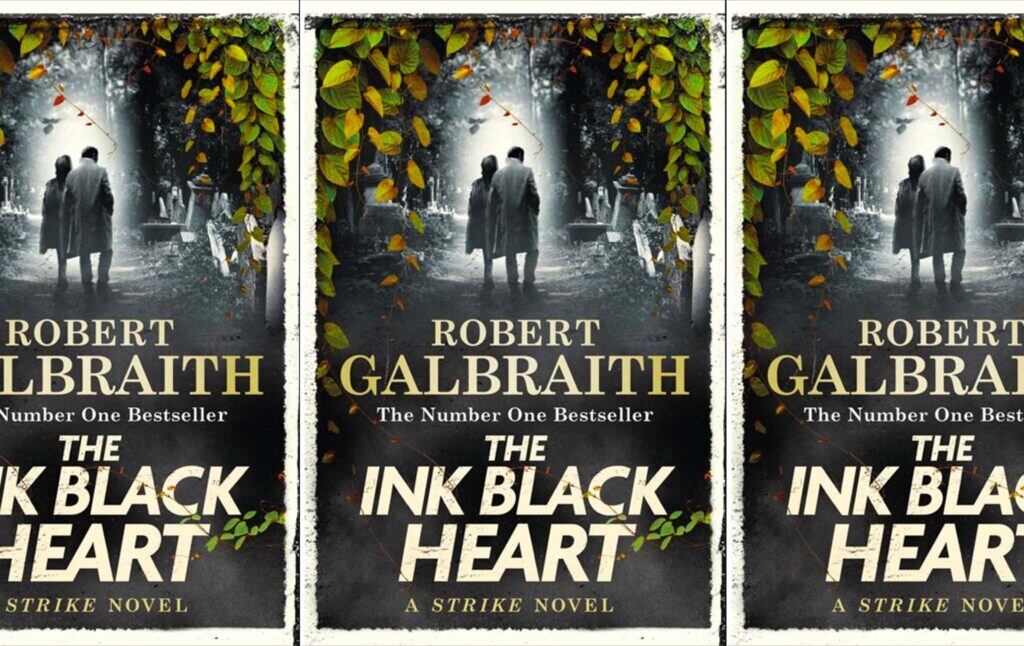
J.K. Rowling’s New Novel Shows Why Having an Editor is Important
When you are a famous author, you can release a thousand-page novel filled with vicious parodies of your Twitter enemies. But should you?
If you become an extremely successful author, your publisher is less likely to care about the quality of the books you write. If everything you write is guaranteed to sell well because you have built a large audience, then the editor may be disinclined to reject a new manuscript even if it is obviously terrible. Perhaps they will try to offer some constructive suggestions. Or perhaps they will just print whatever you submit, knowing that the purpose of a for-profit publishing company is to sell as many books as possible, not to sell the best books possible.
J.K. Rowling’s new mystery novel The Ink Black Heart (published under her pseudonym Robert Galbraith) is 1,200 pages long. It is so long that even devoted online fans of her thriller writings are calling it “such a slog” and saying it “dragged on and on.” I would go further and say that it is almost literally unreadable unless you adore Rowling to the point where you would endure any torment that you thought she wanted you to undergo. I am a professional consumer of terrible books (I have read Jordan B. Peterson’s Maps of Meaning and most of the Ben Shapiro canon) but I simply could not get to the end of The Ink Black Heart. If one cannot write a review of a book without reading every word of it, then The Ink Black Heart is immune from being reviewed.
The Ink Black Heart is not bad because it is long (my favorite book, the architecture compendium A Pattern Language, is a similar length). It’s bad because it’s what happens when an author spends too much time on social media and tries to spin their anger at Twitter trolls into a mystery story. It’s bad because it’s a sad demonstration that J.K. Rowling has had her brain destroyed by spending too much time online and letting criticism get to her.
In The Ink Black Heart (spoilers), the murder victim is a young woman, Edie, who has become successful and wealthy by creating a popular fantasy series (in this case a YouTube cartoon called The Ink Black Heart, starring a disembodied heart named Harty). The Ink Black Heart spawns a toxic fan community who deluge Edie with misogynistic abuse and threats and complain that she has sold out since becoming successful. It gets so bad that we are told “in terms of the overall brand, The Ink Black Heart is starting to be almost as well known for the aggression of the fandom as for the cartoon itself.” Some of the bad reactions are from fascists, some are from those who criticize Edie “for being racist and ableist and… well, pretty much every ‘ist’ and ‘phobic’ you can think of.” The online abuser who ultimately turns out to have killed Edie is (spoiler) an incel, whose motive is that he despises women. As the Telegraph’s reviewer observed, we “don’t have to ask where Rowling gets her ideas from,” because she has spent years in battles online over her own transphobic comments.

Part of what makes The Ink Black Heart tiresome is that it is so clearly an effort to settle scores with Rowling’s own Twitter trolls, and to arouse sympathy for a successful writer who must deal with negative reactions from their fans. In the book, the criticisms of The Ink Black Heart over racism and transphobia are treated as ludicrous, baseless, and vicious, and Edie is mercilessly bullied by men who resent her success. But the problem is not just that Rowling builds the book around her personal grievances with the online public, but that in order to do so she produces page after page of fictitious versions of Twitter threads, chatroom messages, and comments sections. These seem to drag on and on and are no more enjoyable to read than actual Twitter threads of people spouting a bunch of toxic bullshit. A non-exhaustive compendium:
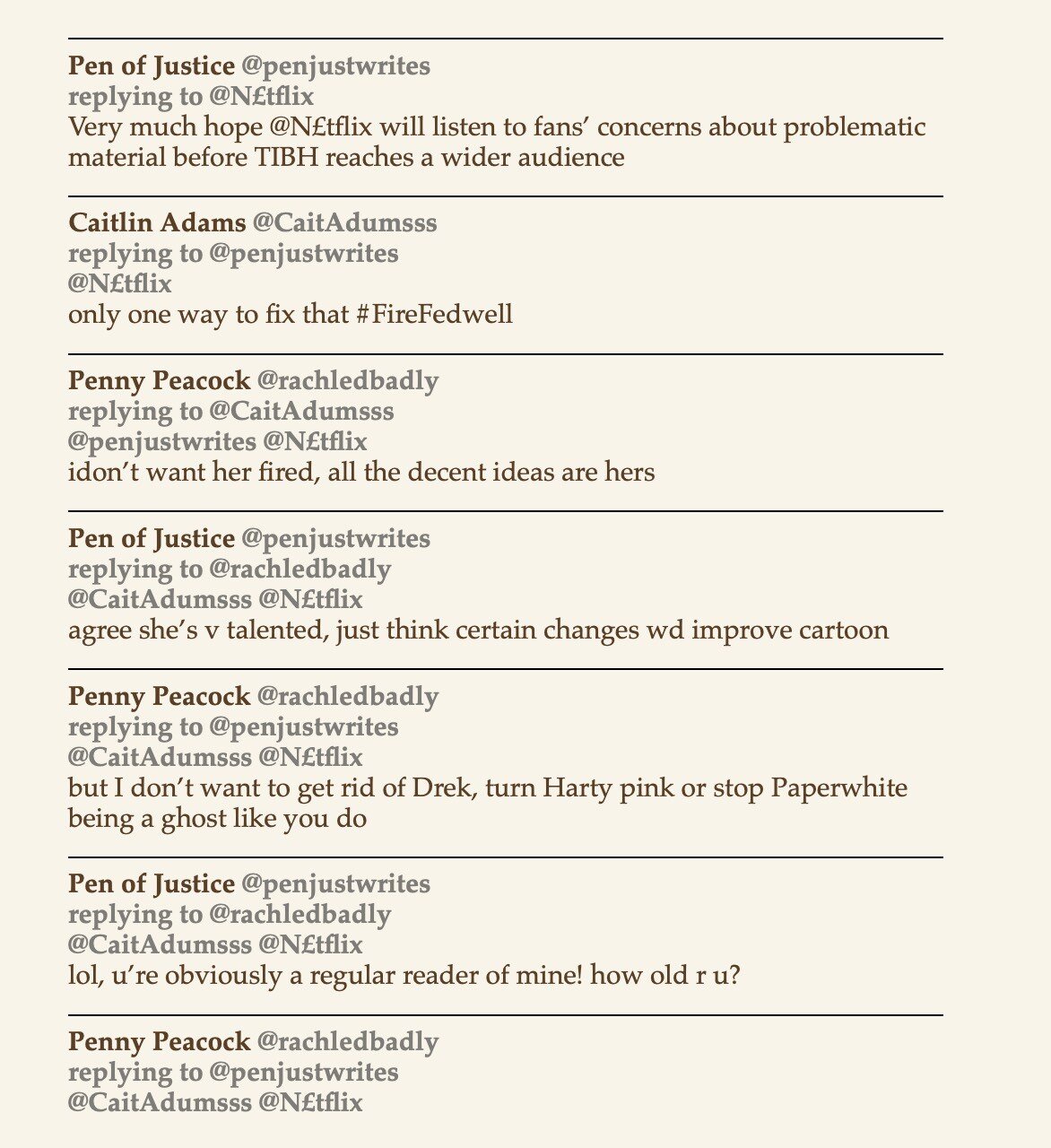
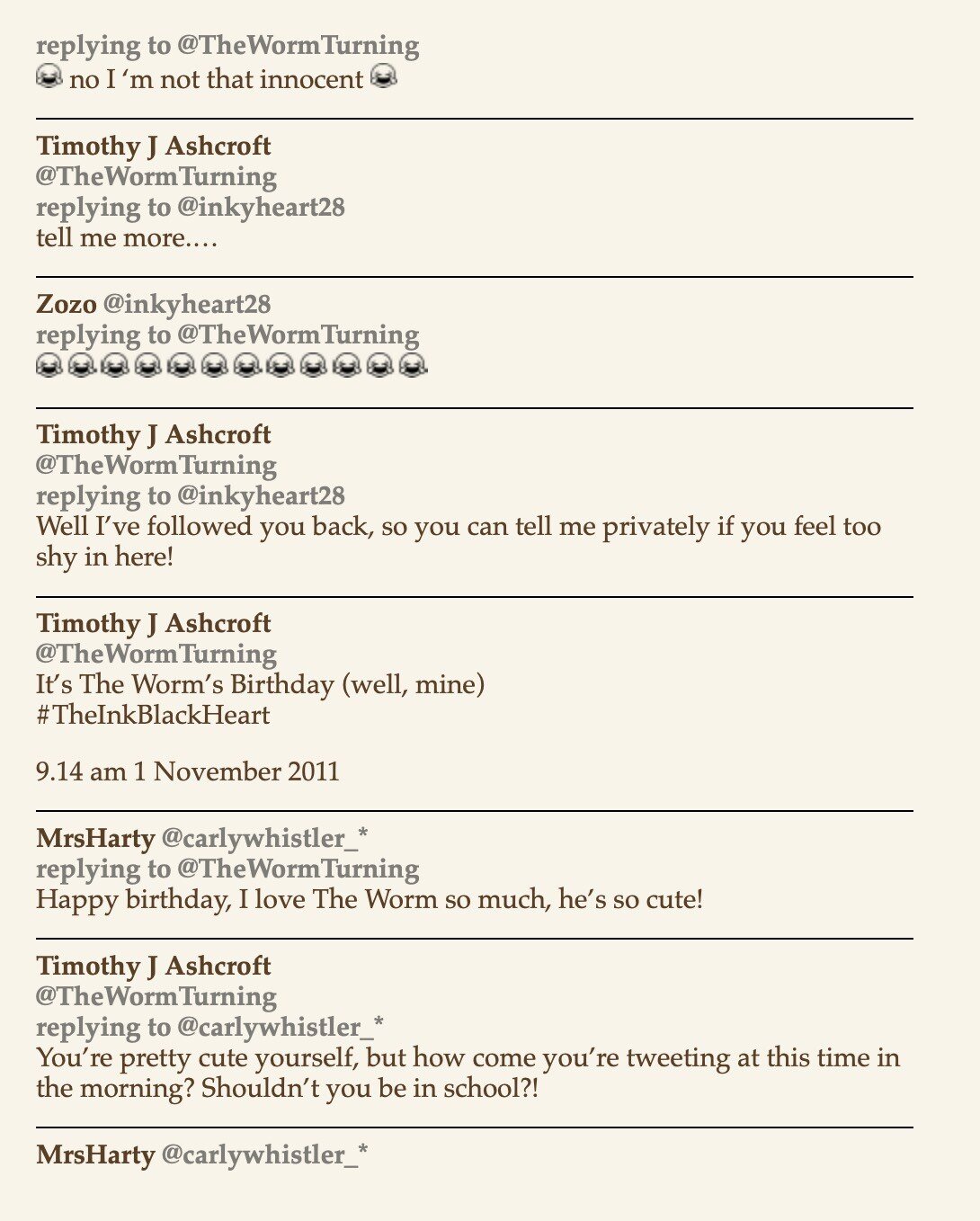
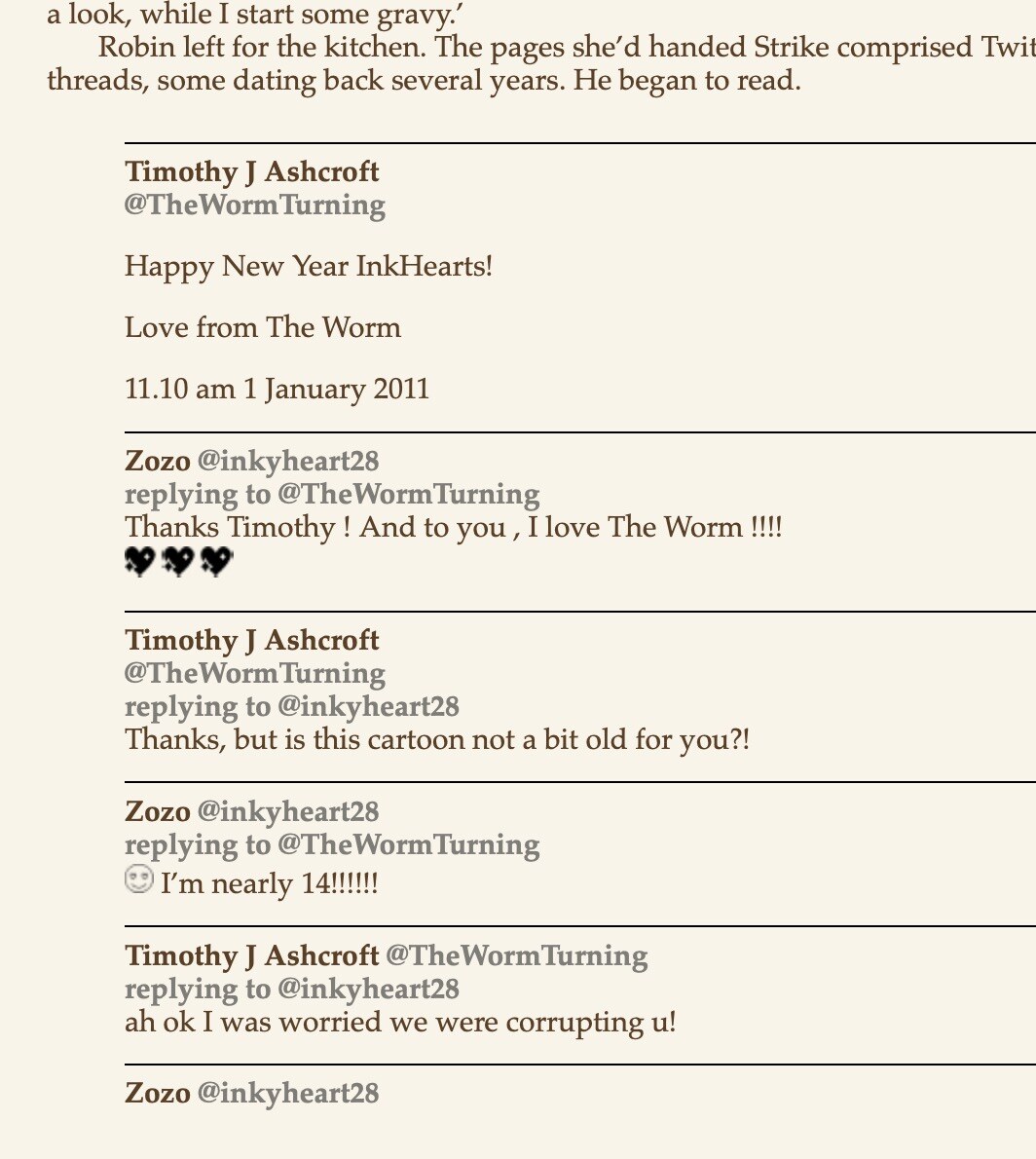
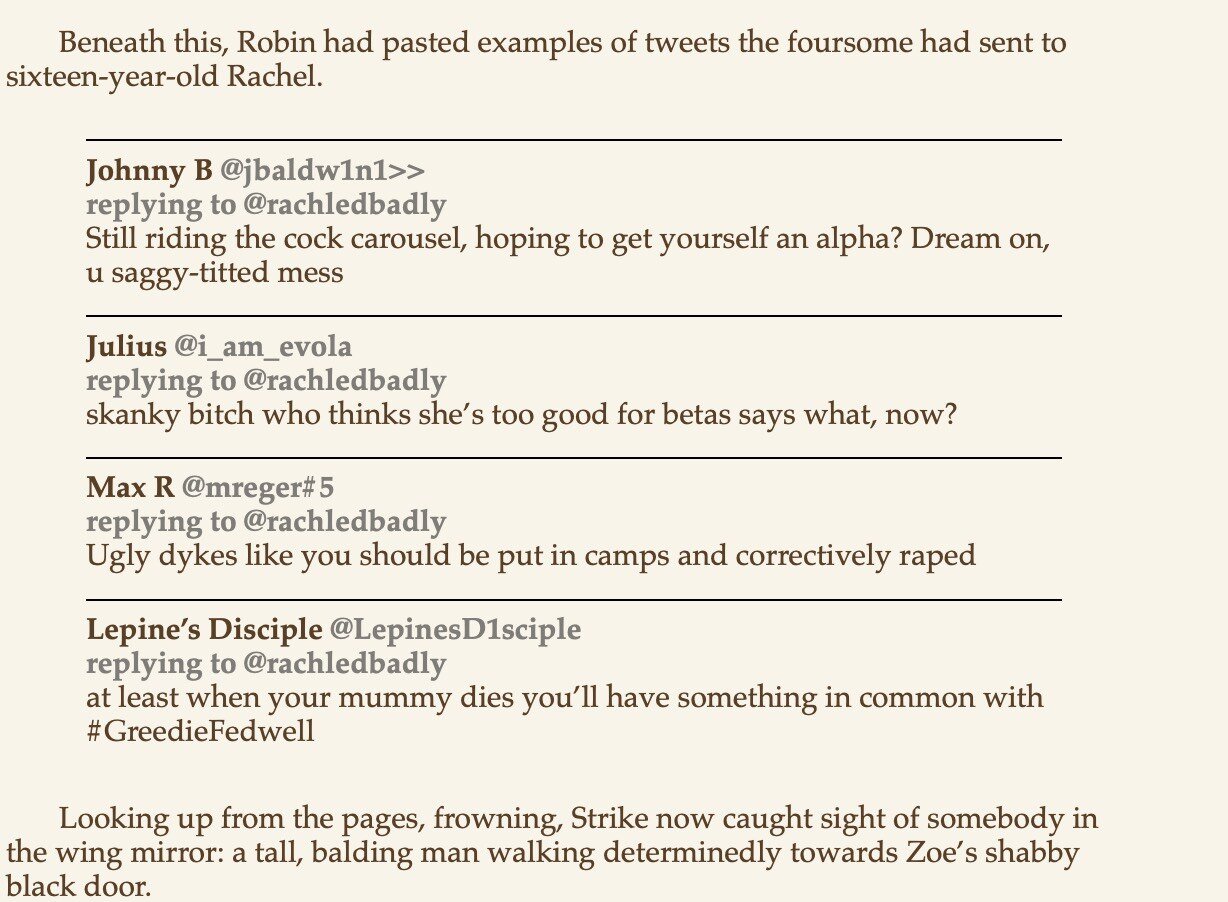
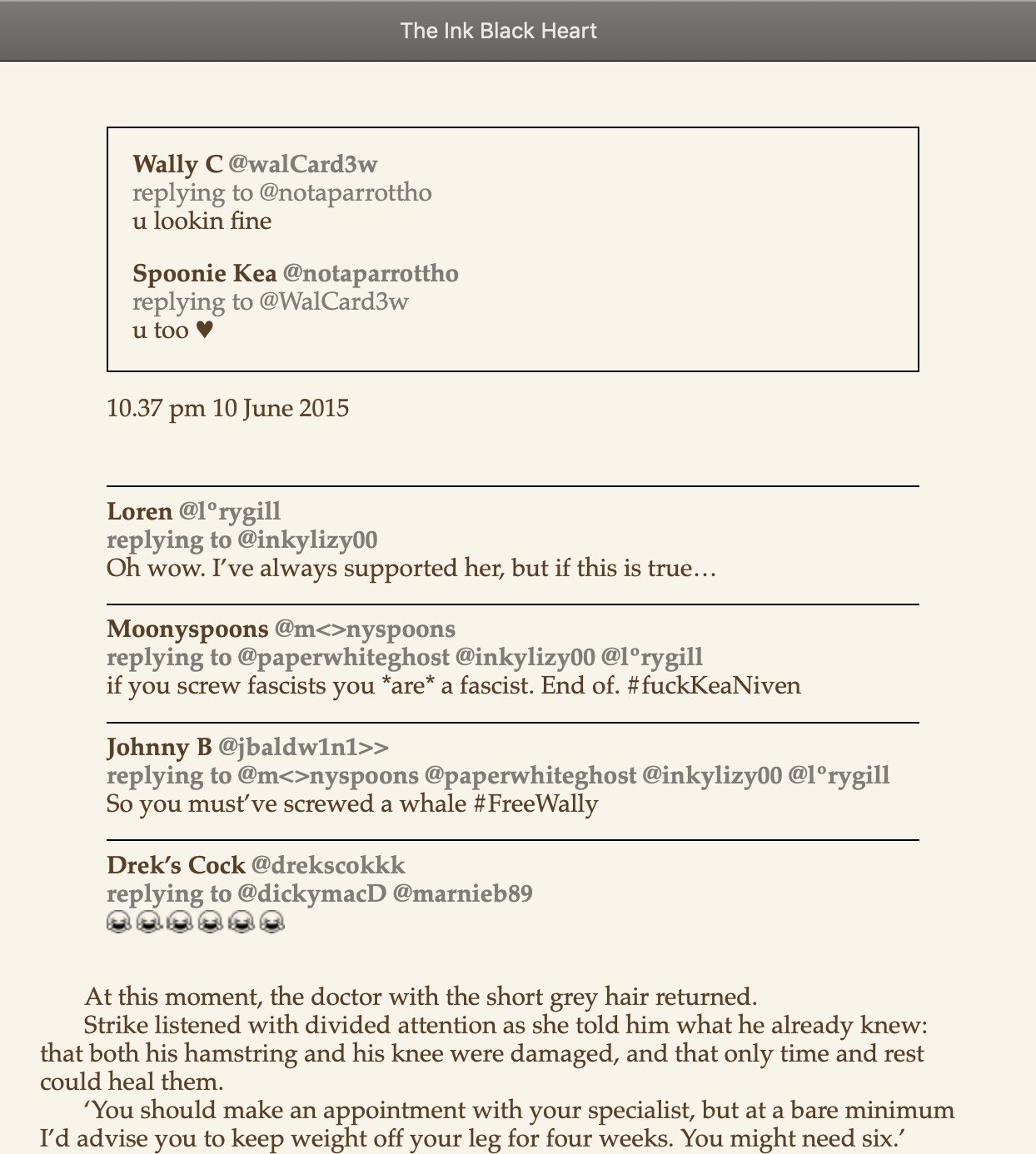
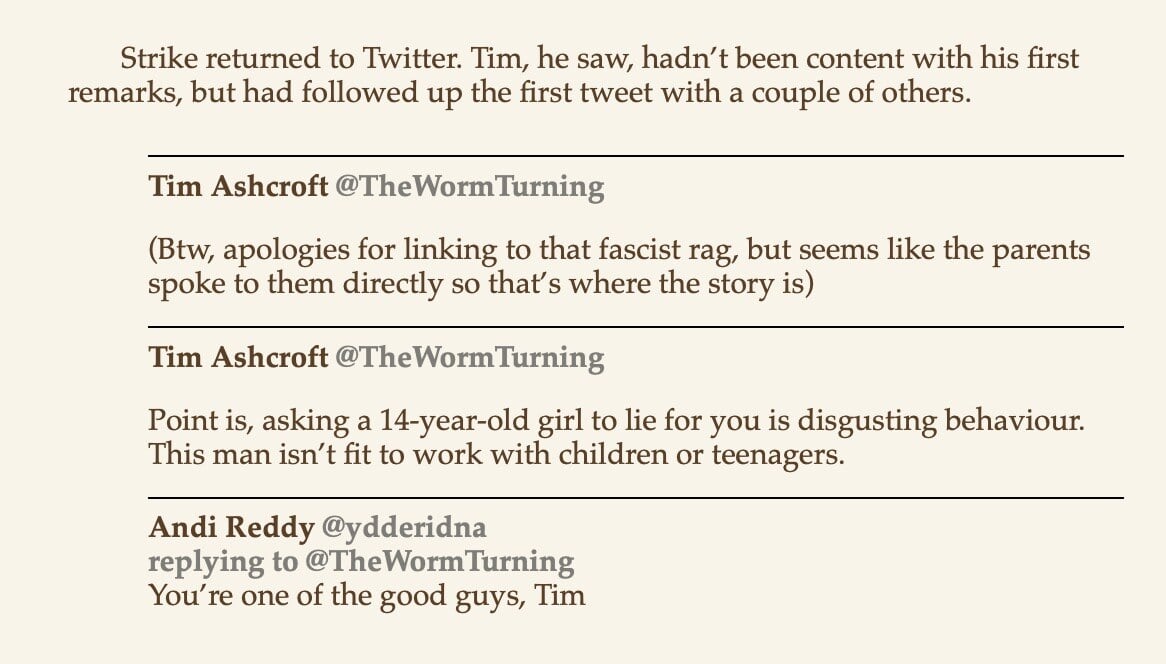
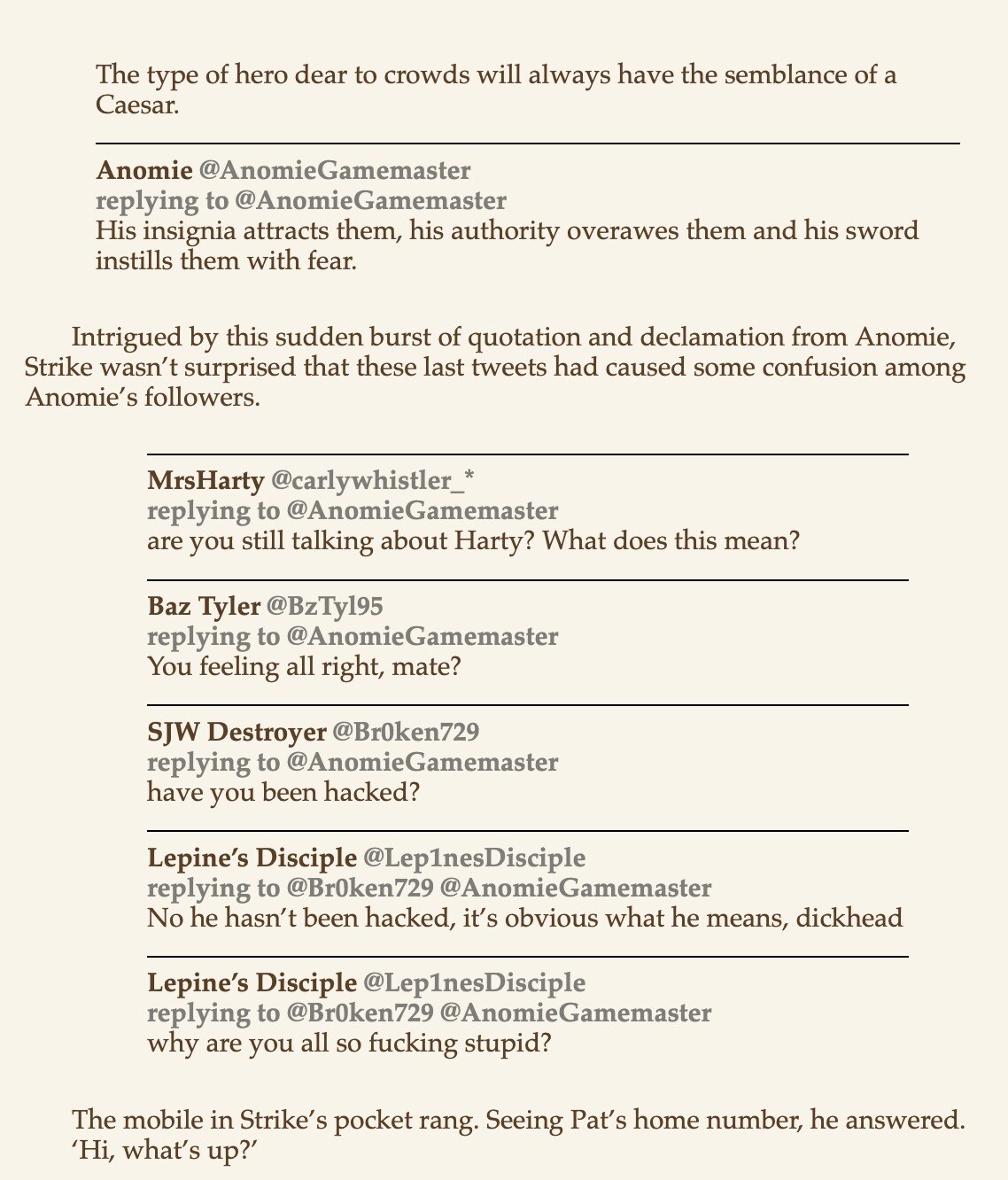
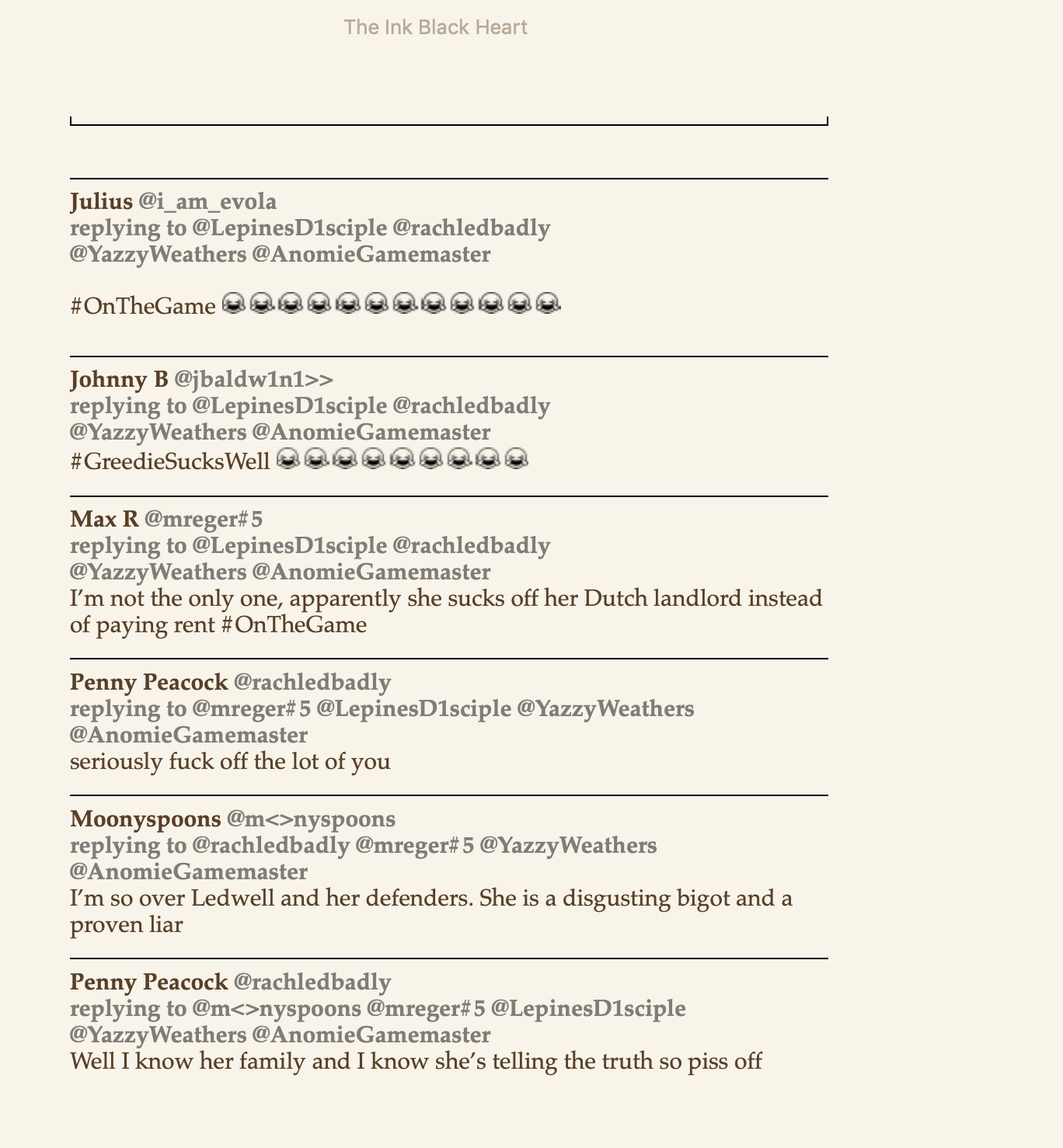
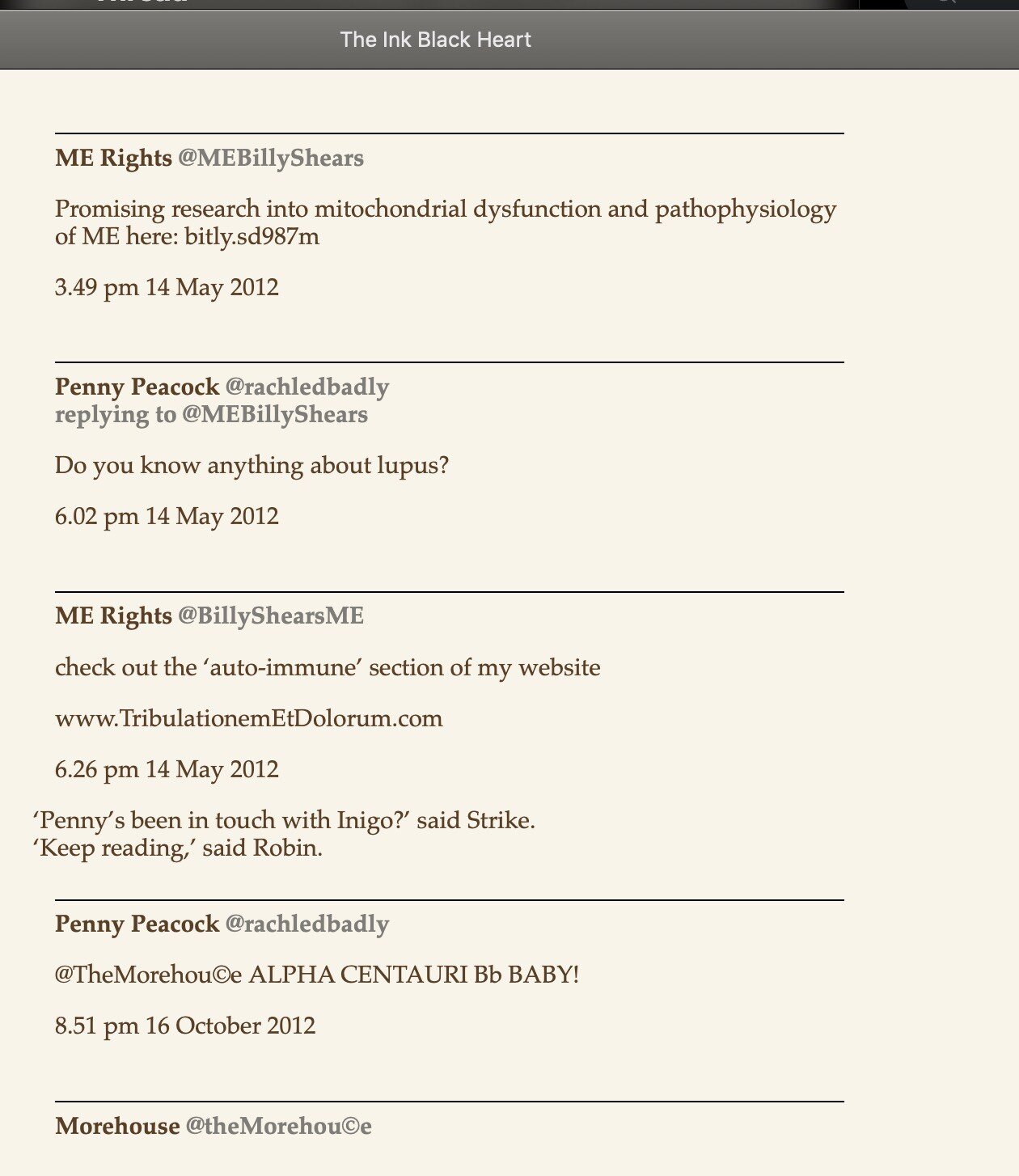
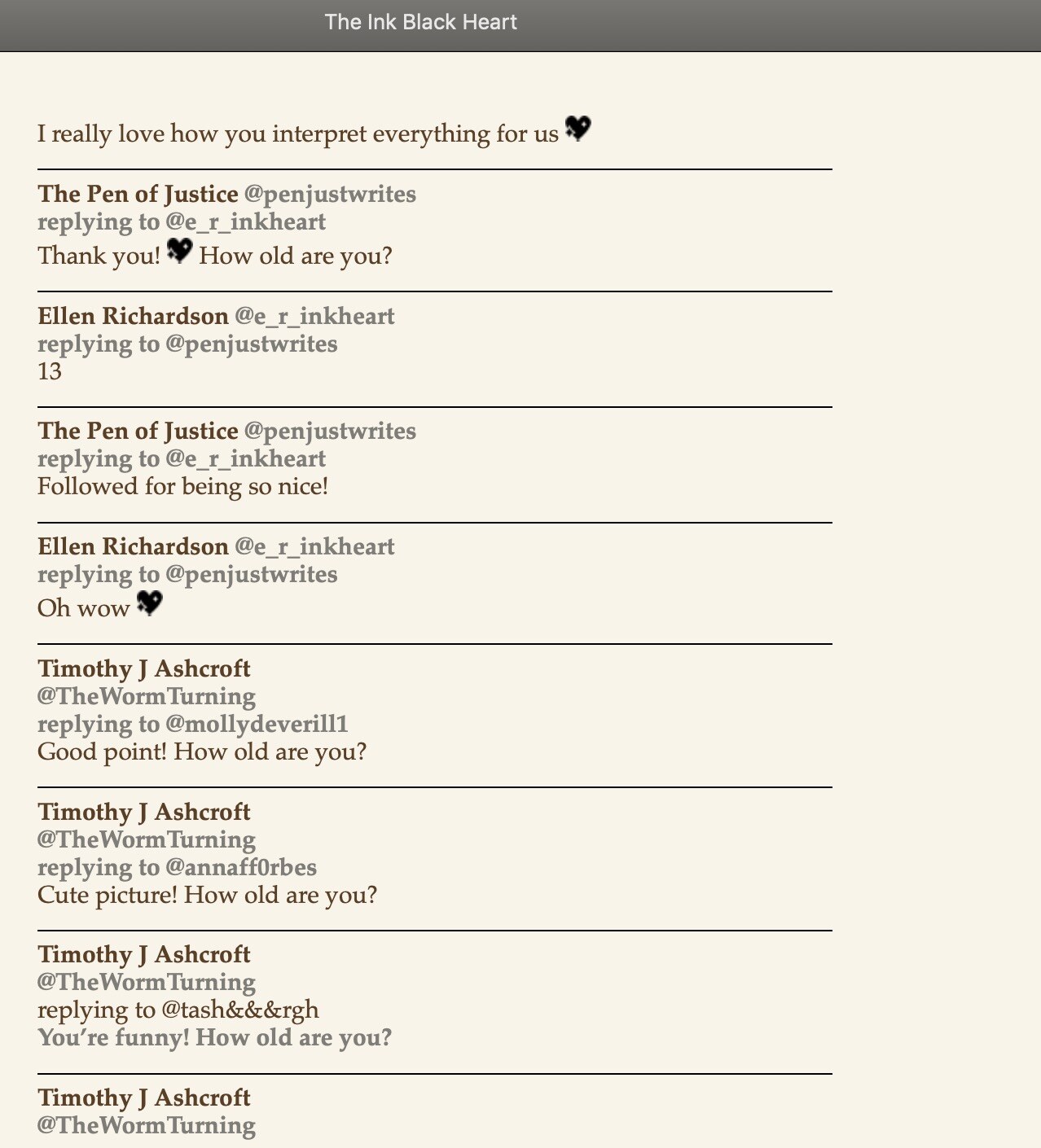
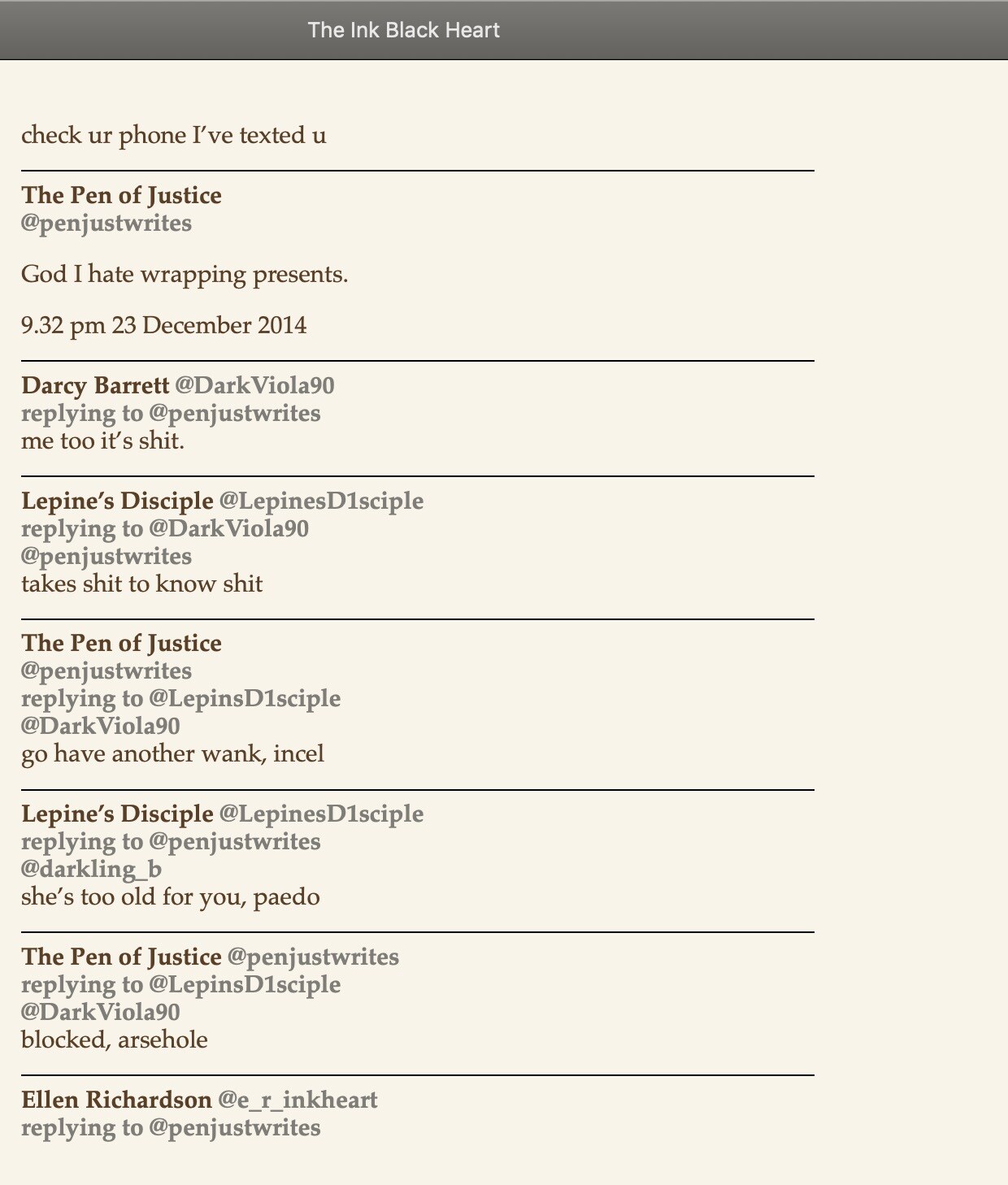
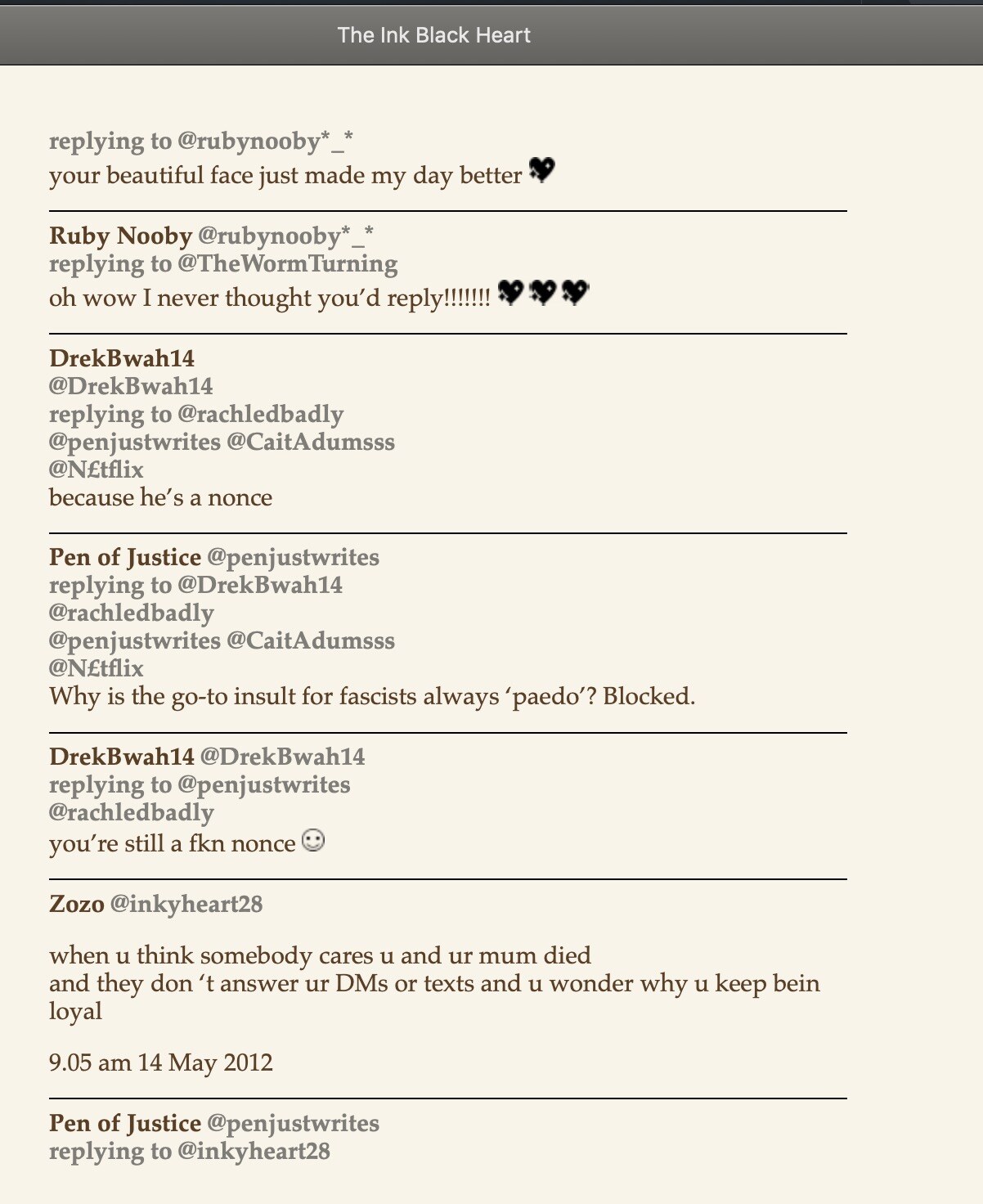
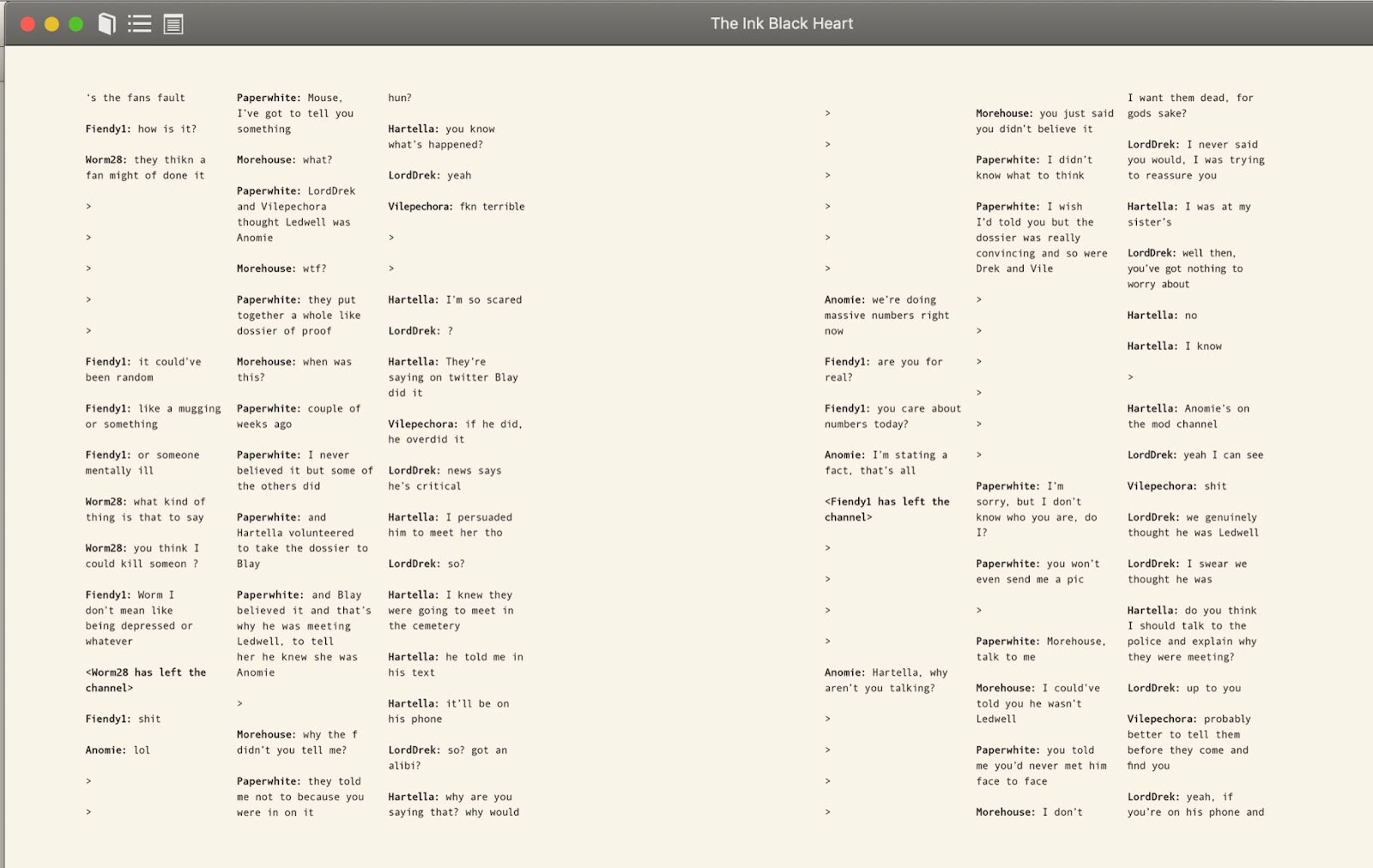
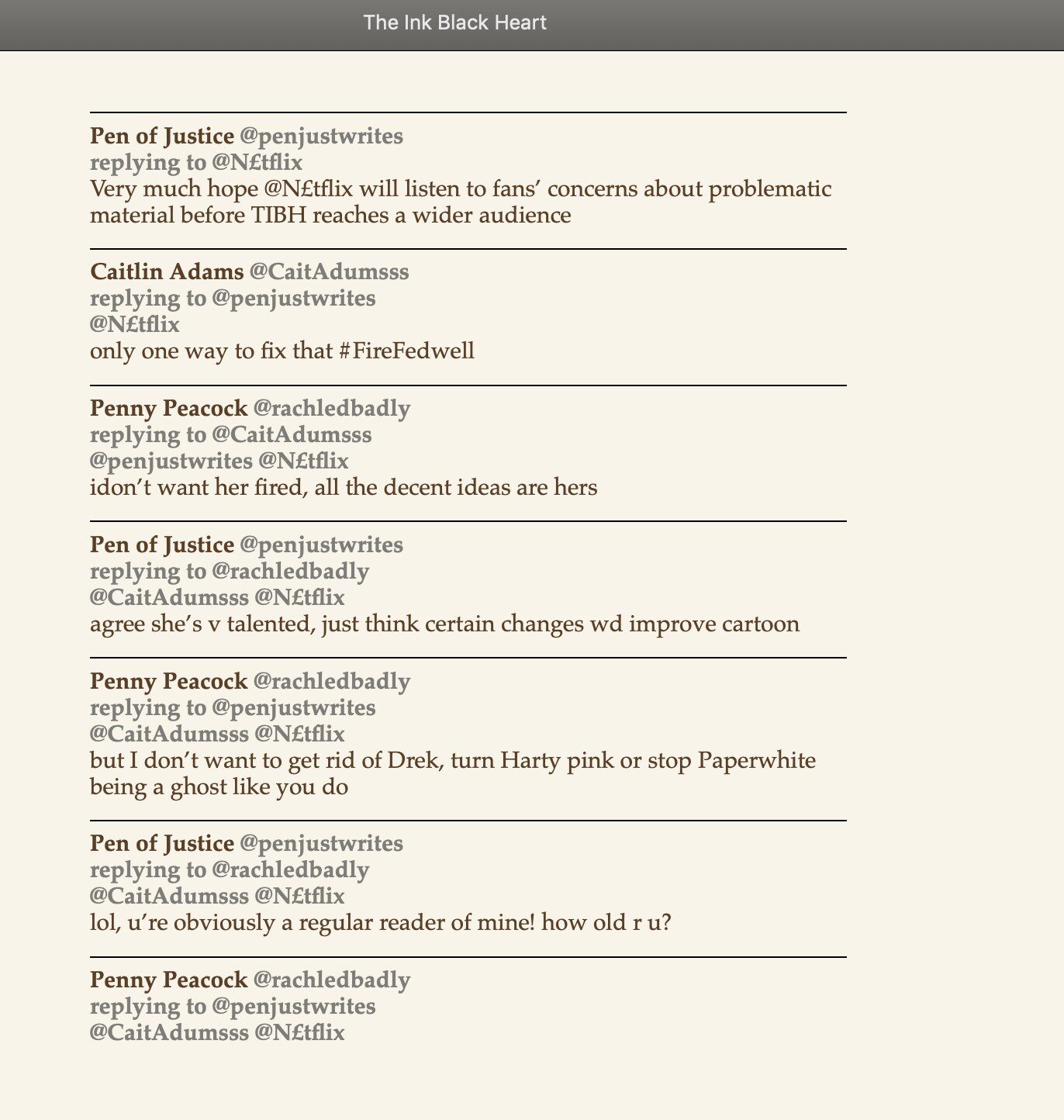
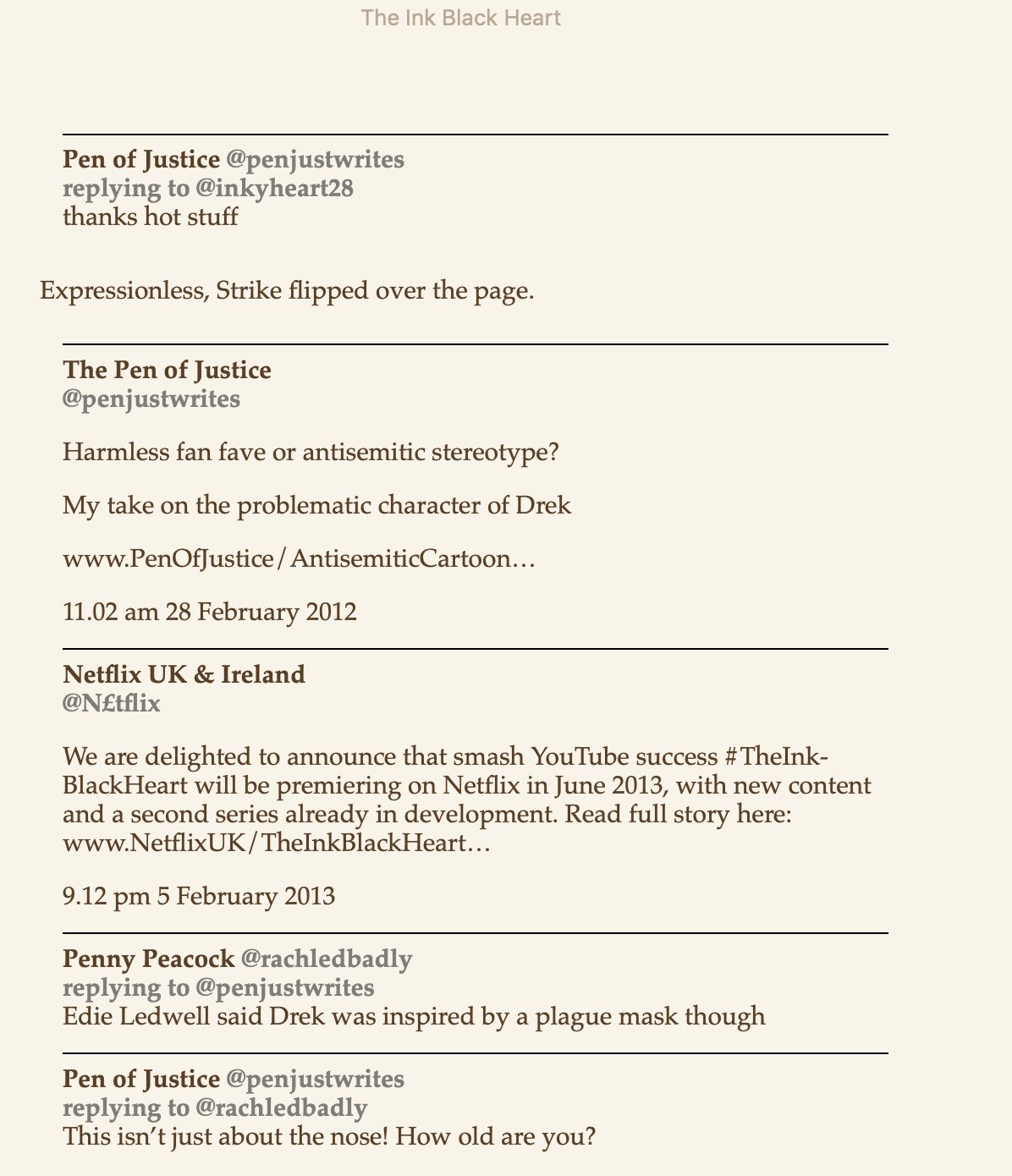
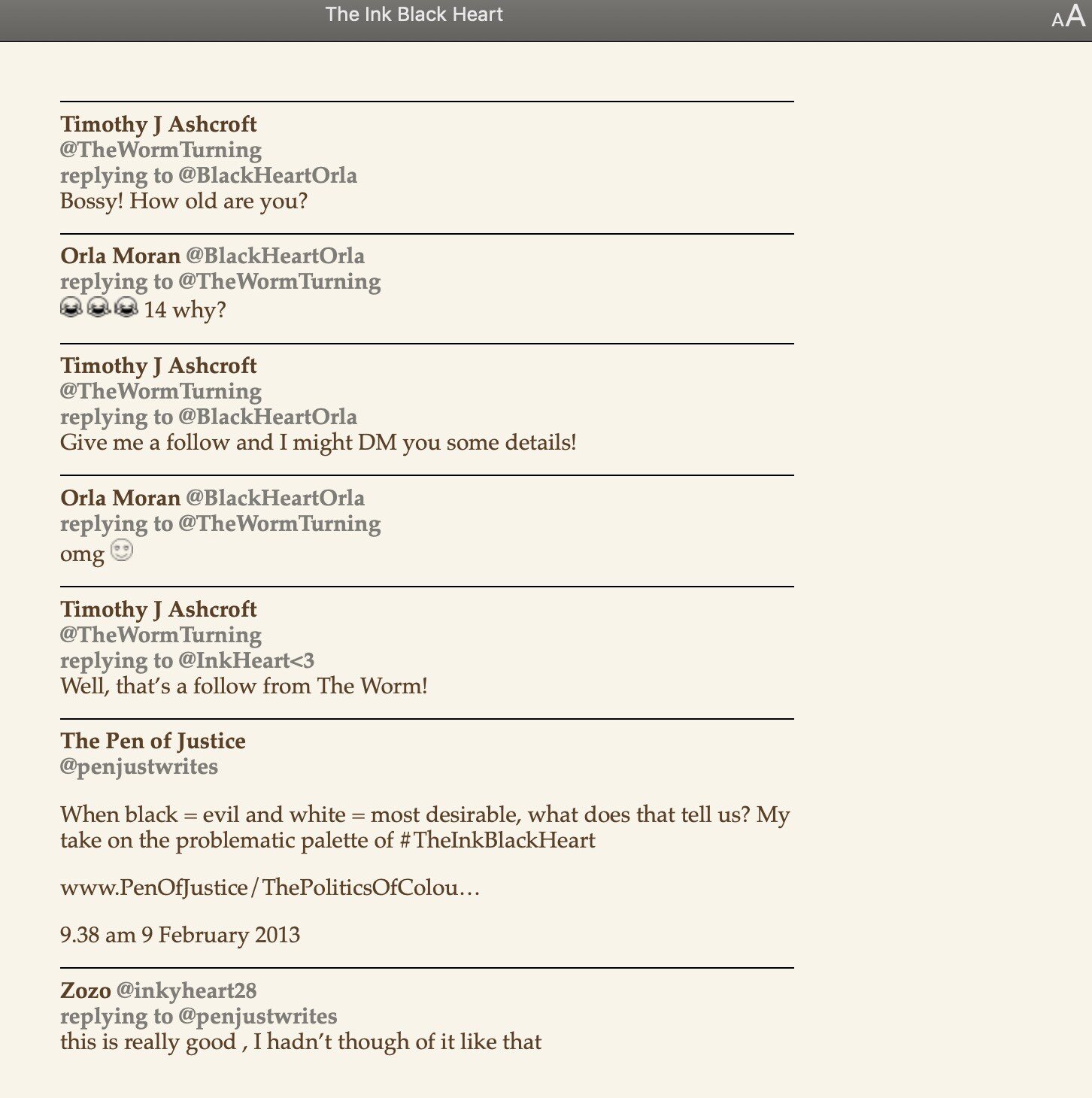
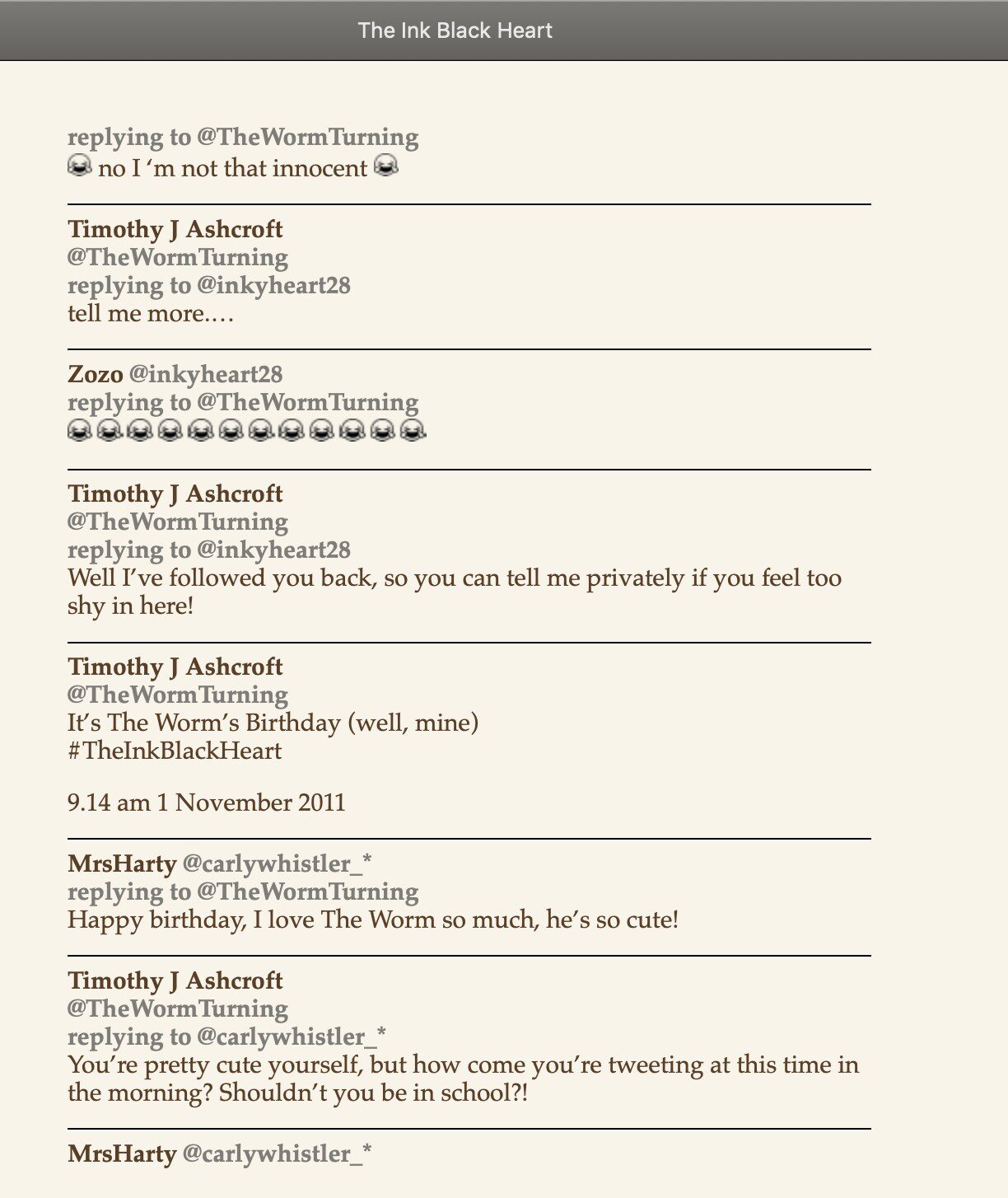
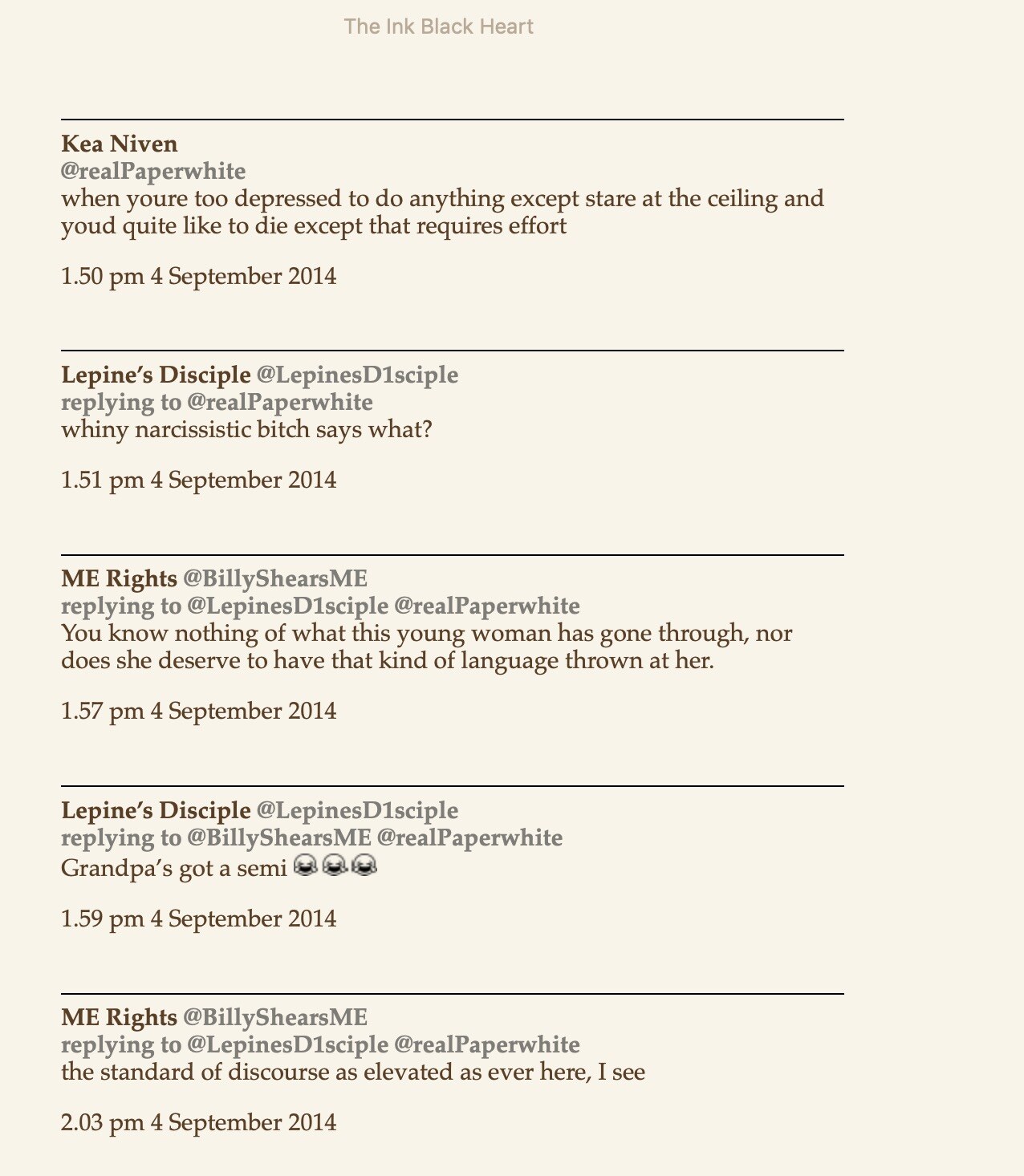
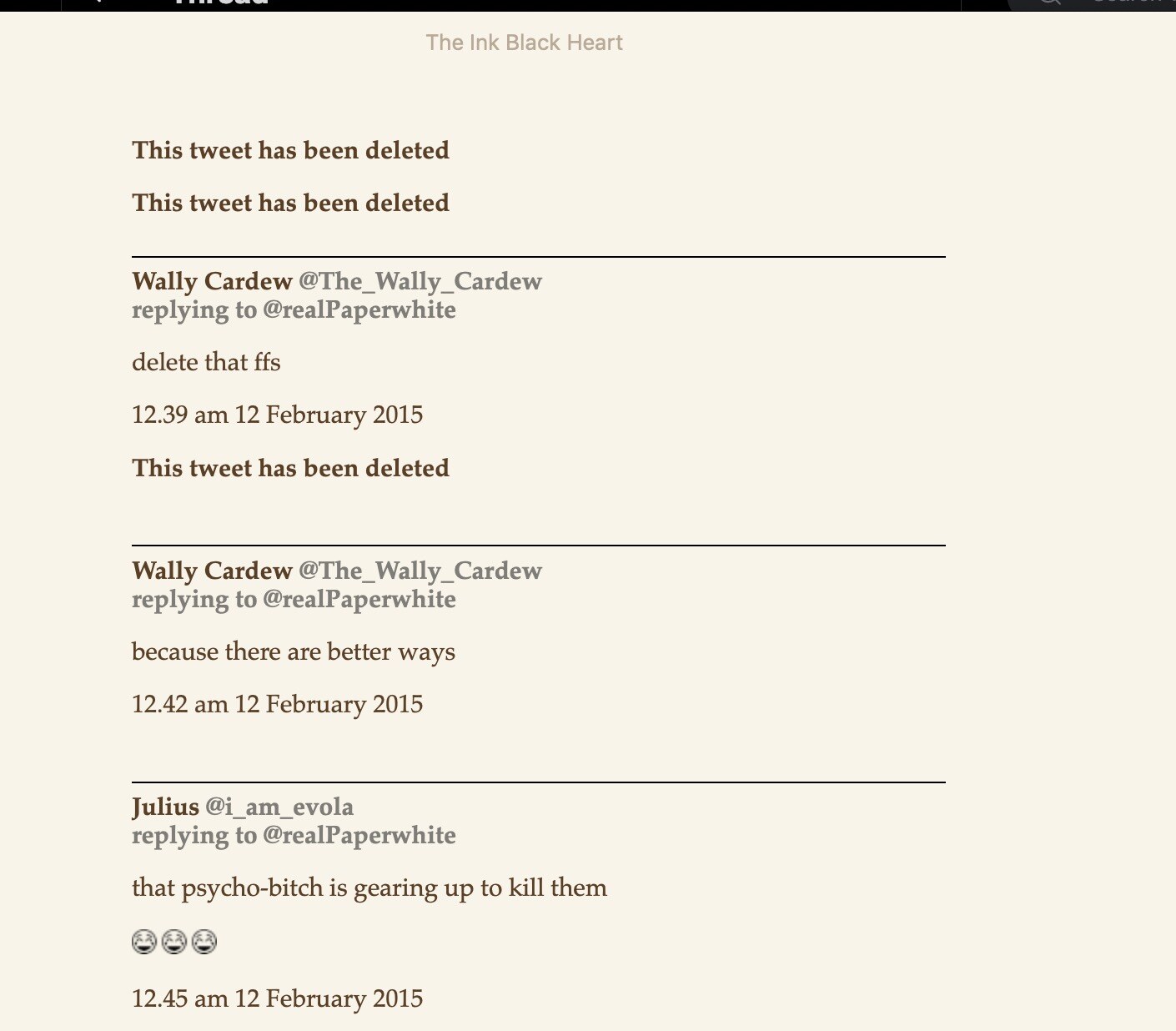
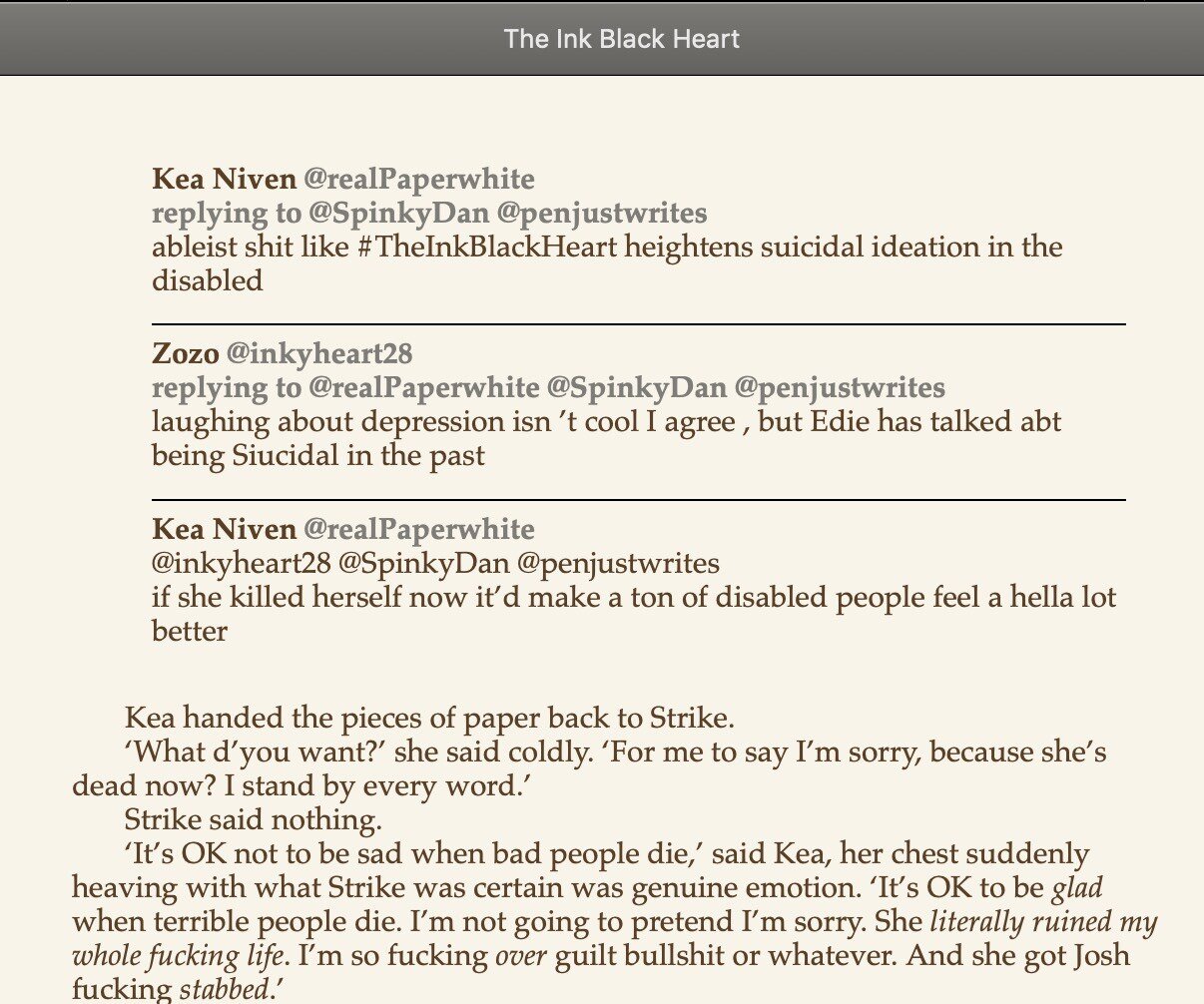
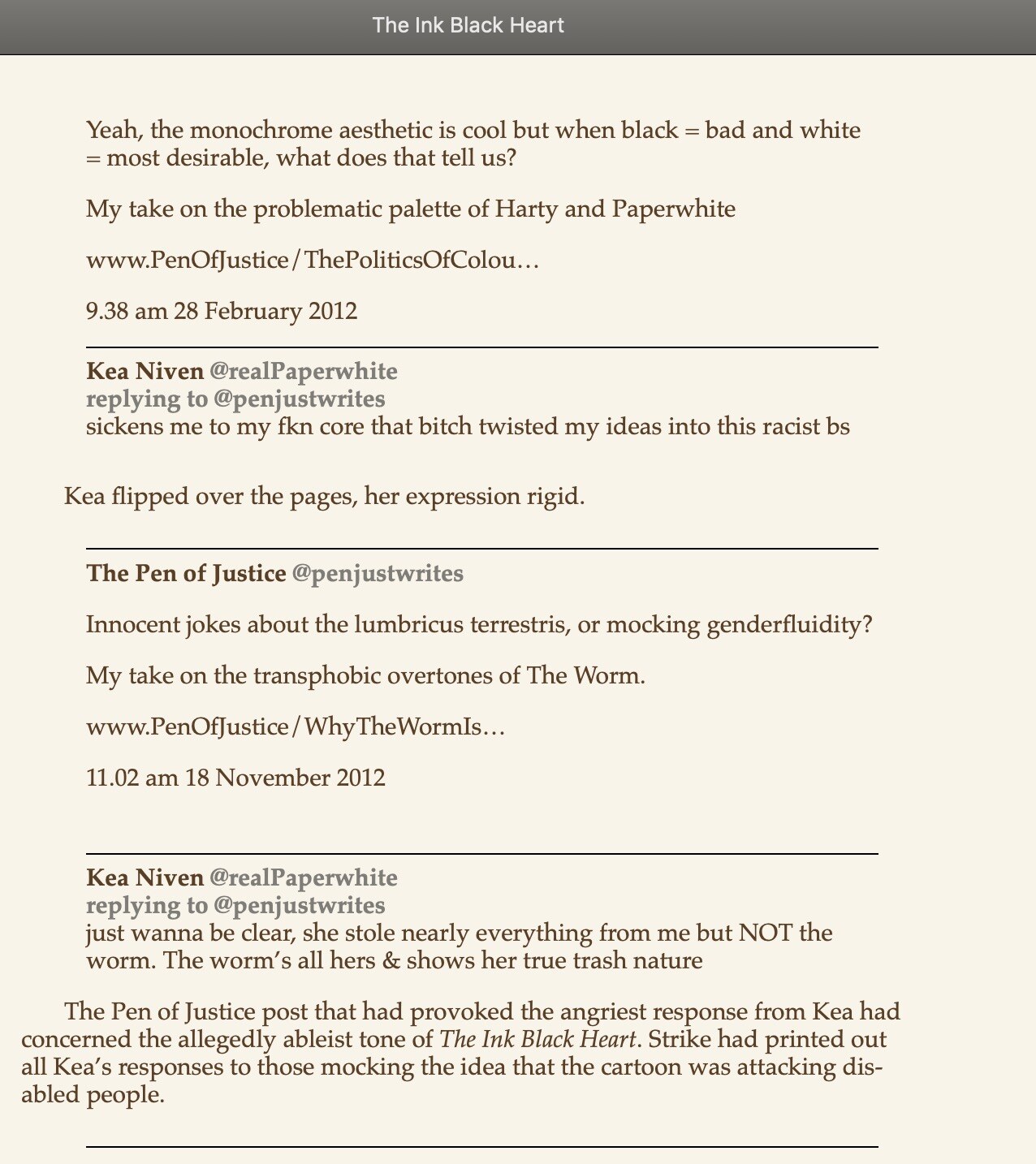
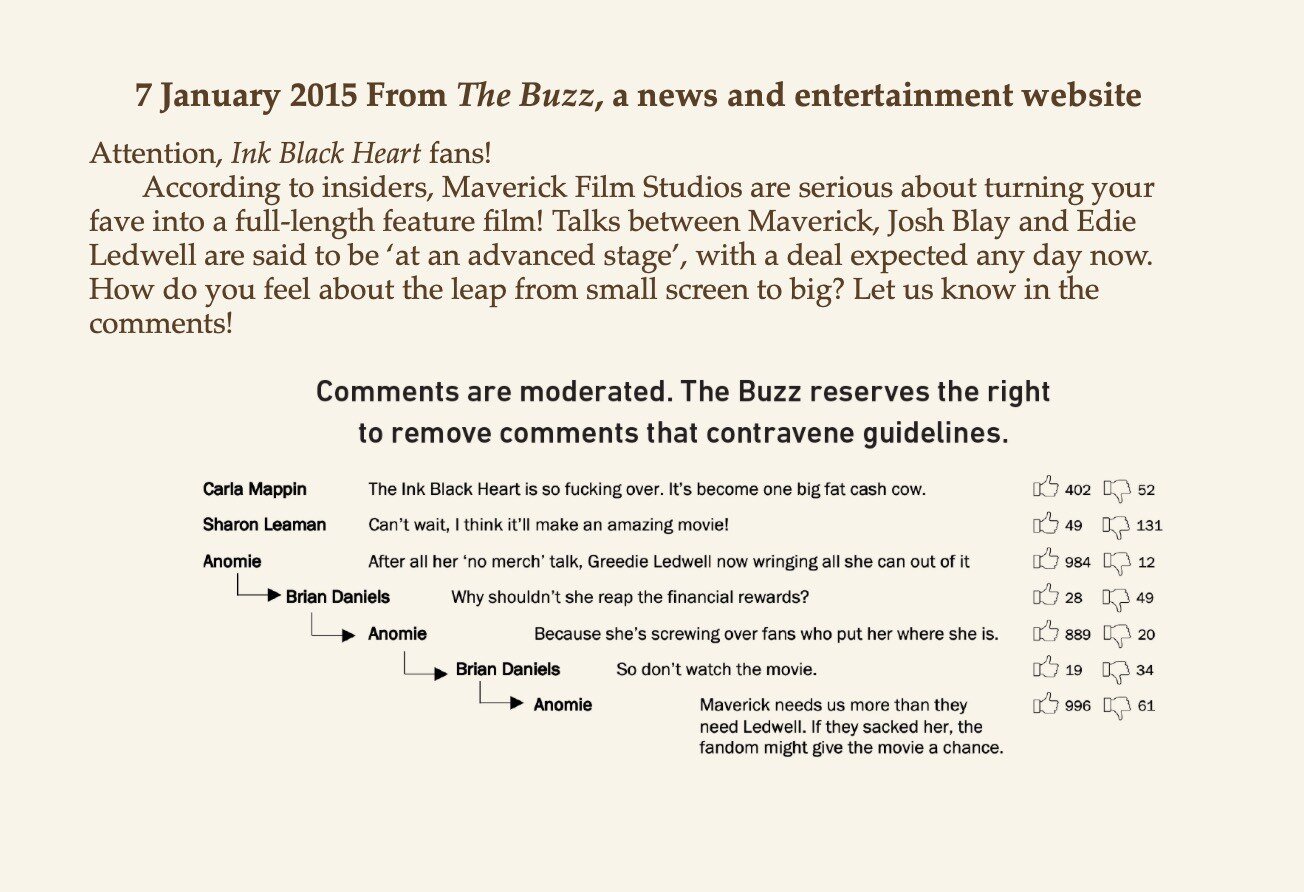
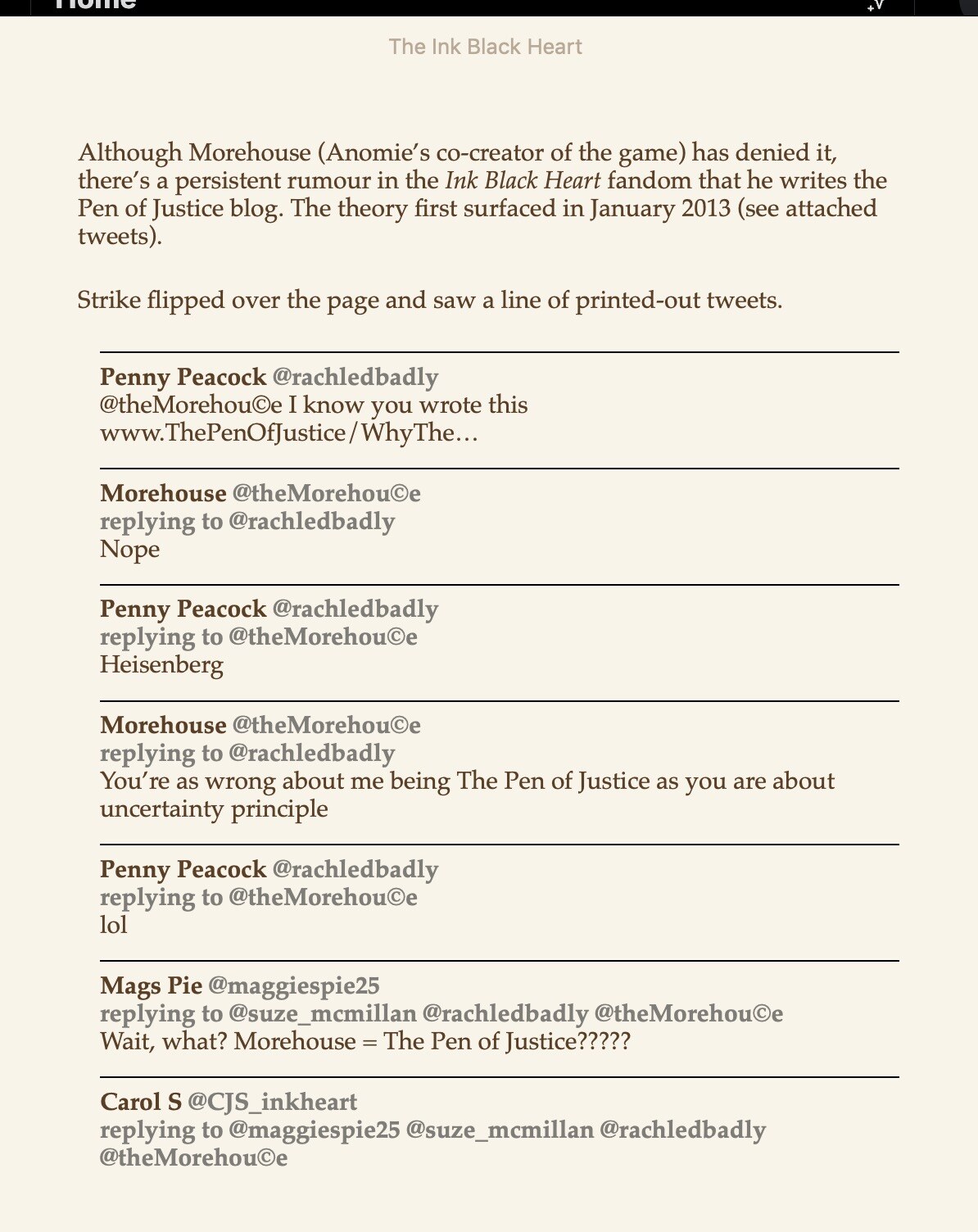
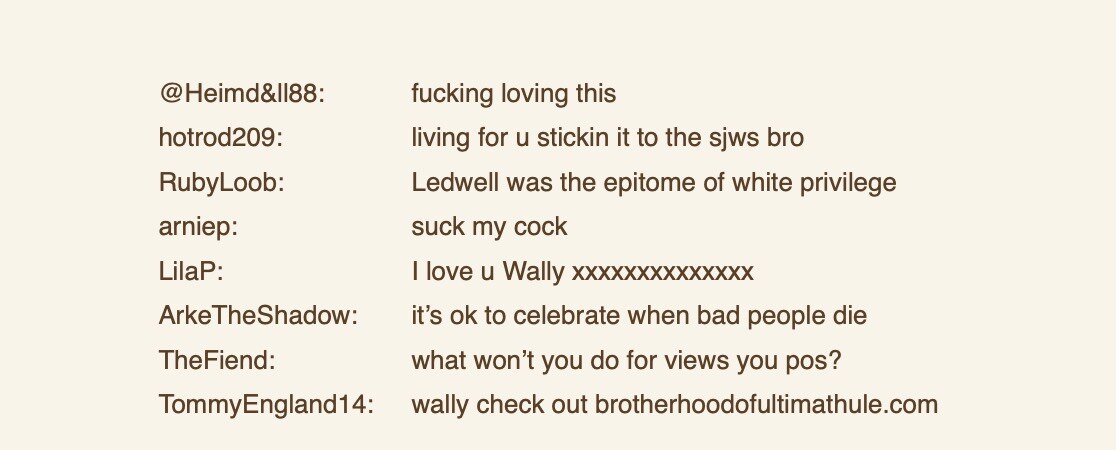
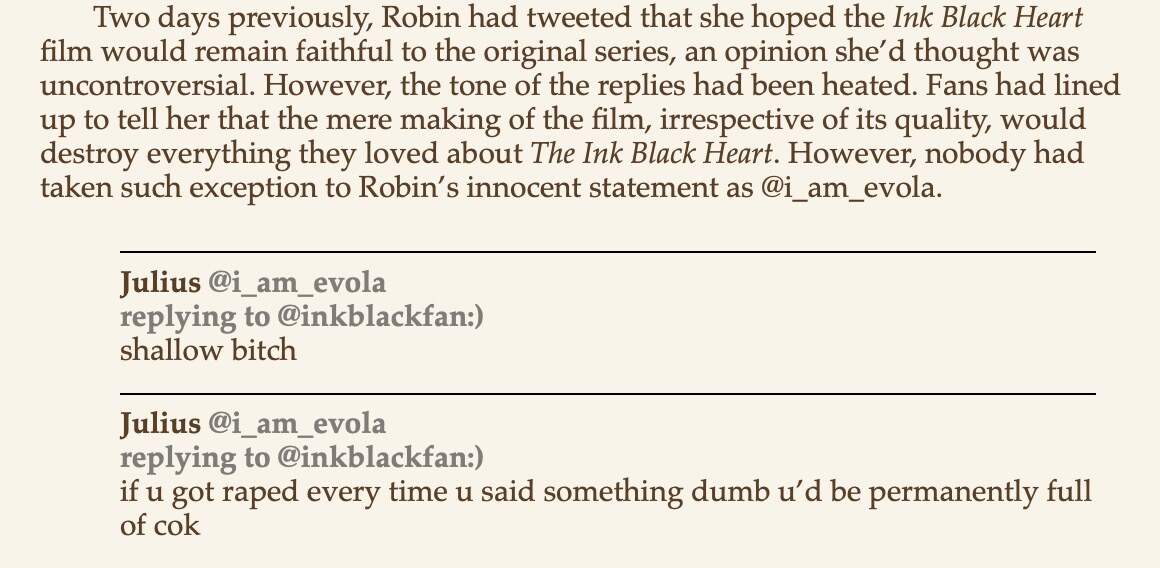
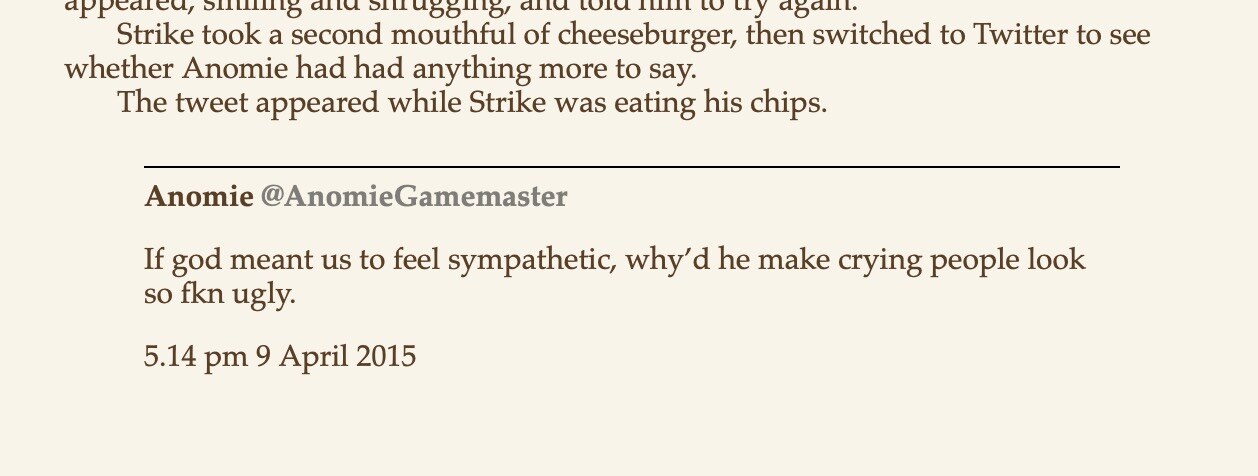
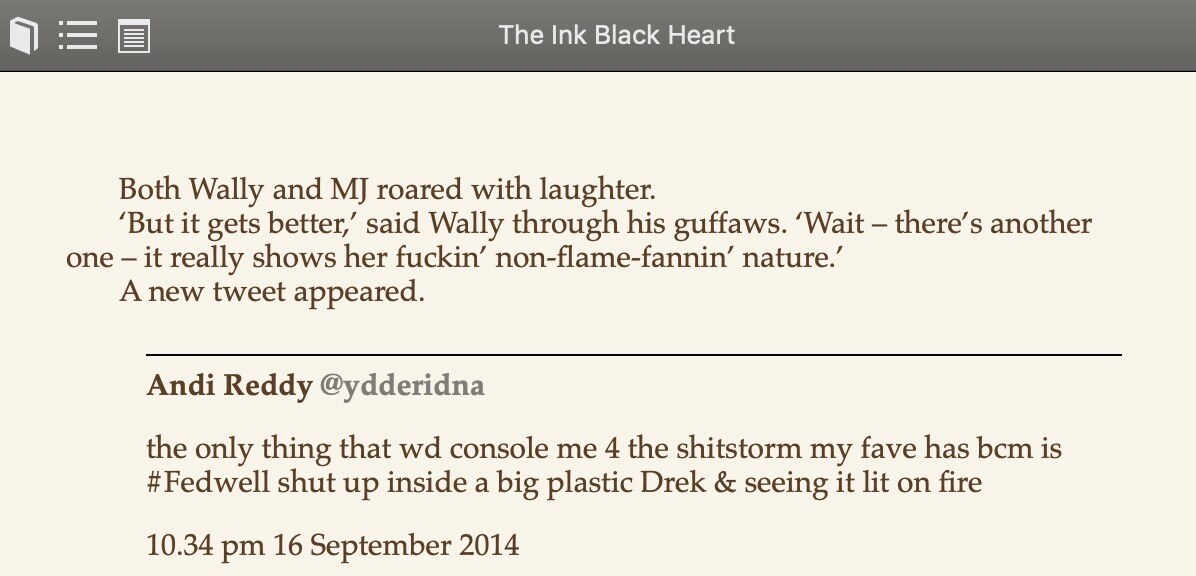
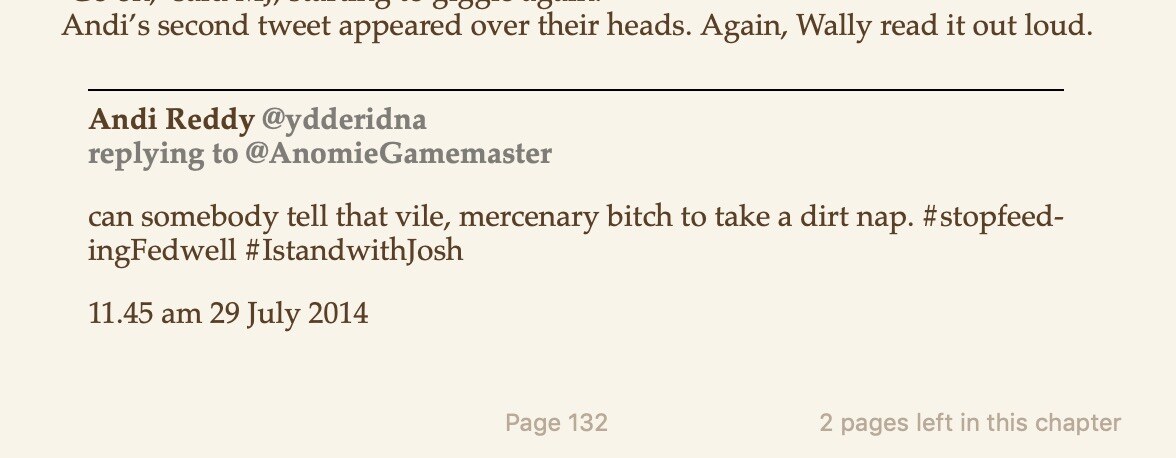

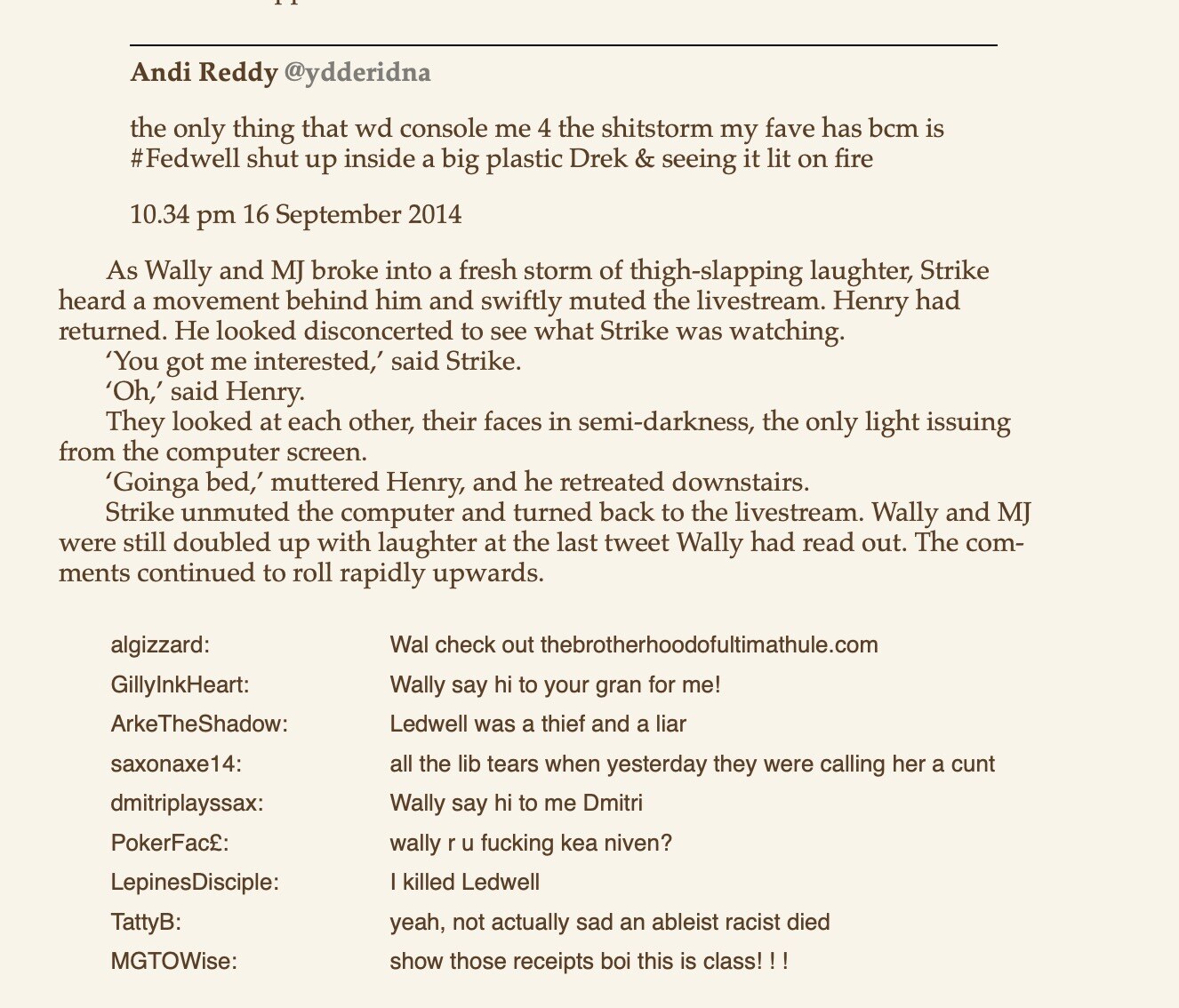
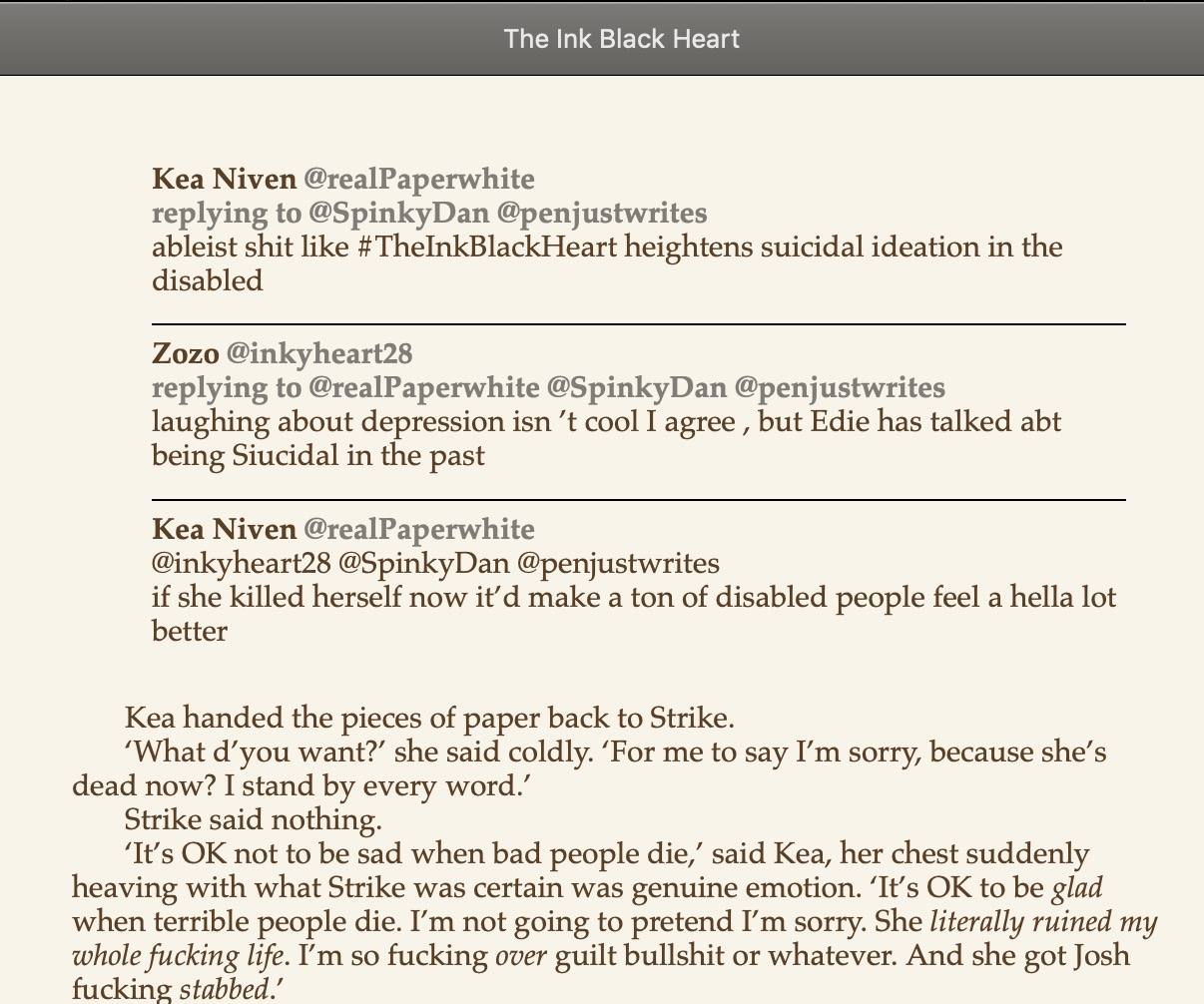
In this passage, Rowling appears to be parodying the Tumblr blogs of disabled people, in a way that the real-life targets of the parody will undoubtedly find cruel and offensive:
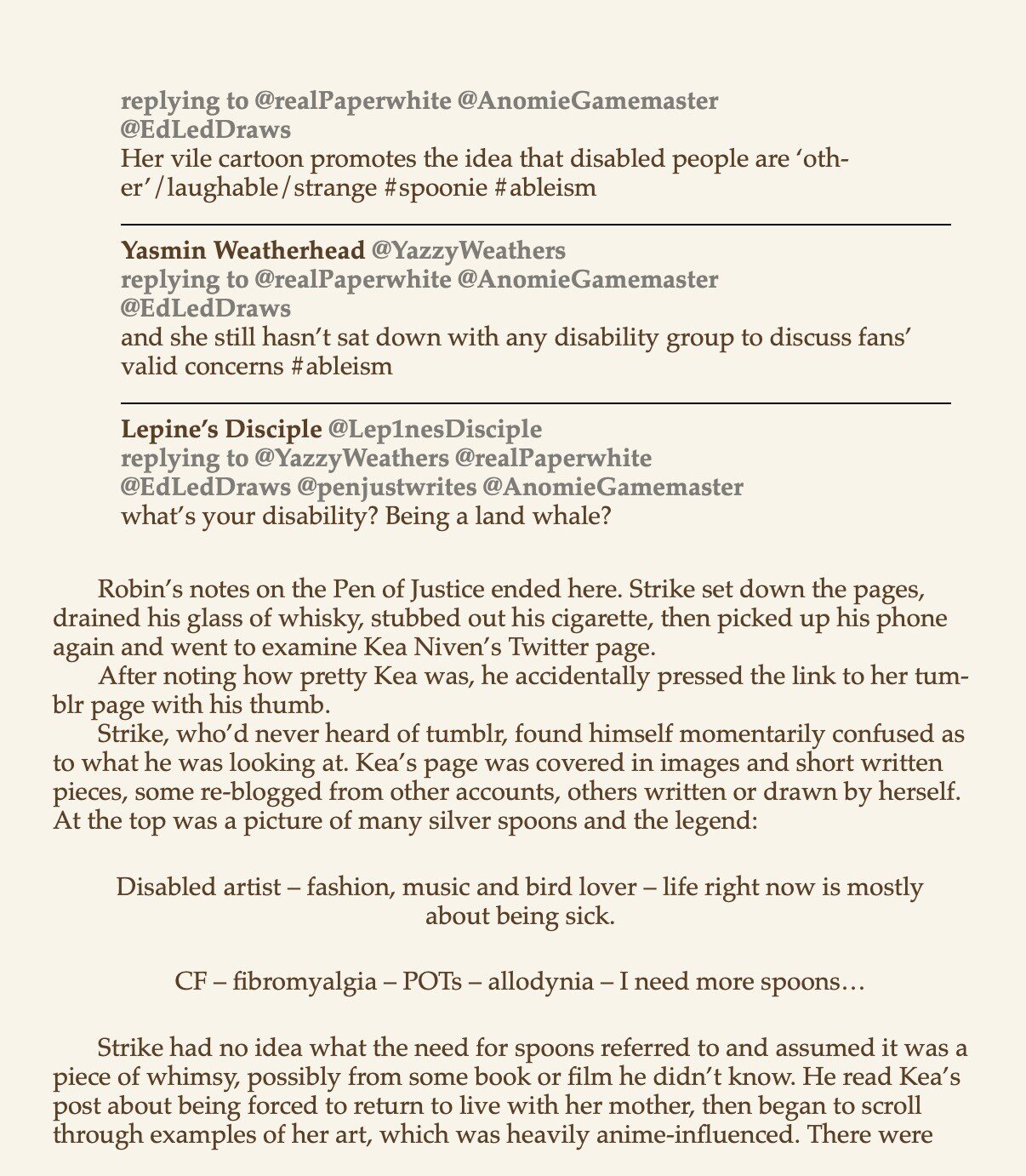
The best defense of the style itself is that this is the way people communicate nowadays. But incorporating dialogue from social media into fiction is a delicate task, because it is hard to make it sound natural and plausible. (I think Sally Rooney actually does a pretty good job of that in Beautiful World, Where Are You.) Rowling’s tweets do not sound like her actual critics; they sound like she thinks her critics sound (i.e., ridiculous). And it goes on and on and on and on. I don’t know how much you enjoy reading online comments sections full of people who are mad about a thing you’ve never heard of, but if this is not something you enjoy, then good portions of The Ink Black Heart will not be to your taste.
I have never seen a novel more desperately in need of an editor. (Infinite Jest needed one but at least the individual sentences were brilliantly written.) I have never seen an author more negatively affected by spending time on social media. I think we can take a few lessons from The Ink Black Heart: First, every writer needs a good editor who can tell them when they have produced something that shouldn’t be published, and as you become more successful and sycophants begin telling you that your farts smell like roses, it is more important than ever to have people around who can say “no.” Second, too much time on Twitter is bad for the brain. It’s very easy to become obsessed with mean tweets, and everyone needs to make sure they have a healthy relationship with social media. Someone can make a billion dollars, enough to make many of their dreams come true, and still end up spending their days in bitter online feuds.
Let us take the latest J.K. Rowling novel as a cautionary tale, and a rather sad one. A talented writer can have the quality of their work destroyed if they become too distracted by what people say about them online. Twitter is a place where the general public can speak directly to rich and famous people, and some of the rich and famous people do not handle the results well. Learning to ignore trolls is key to maintaining sanity online.

I previously wrote in more detail about Rowling’s decline here, including analyzing her pattern of transphobic remarks.


